Search results
Projects
FoodCHI 2017
Technologically enabled food futures
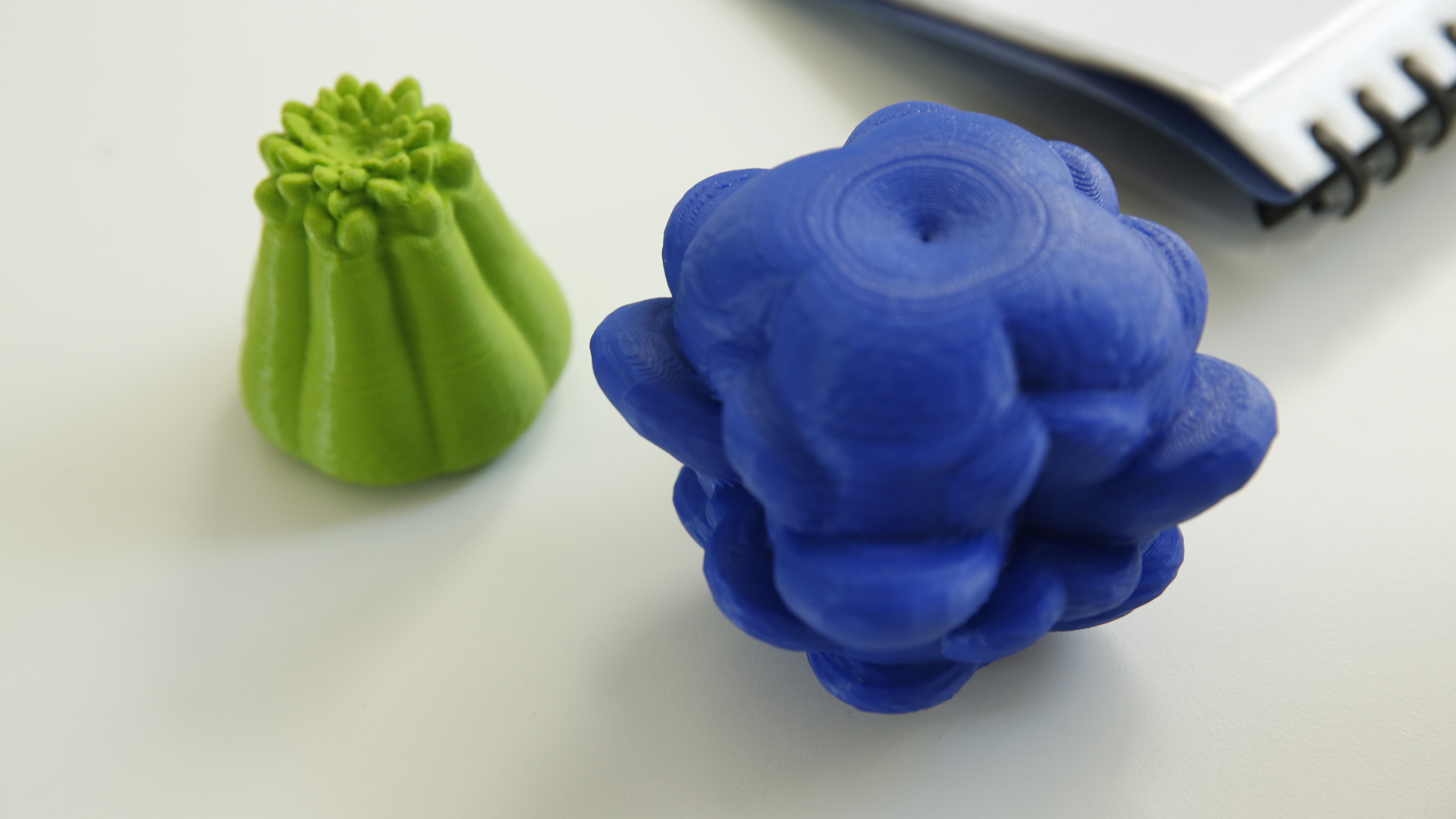
How does design and technology impact food futures? FoodCHI (Computer-Human Interaction) brings together experts and innovators across design, digital media, technology, art, sociology, and food. We examine the role of design and technology in shaping of future foodscapes and work with industry to chart robust approaches for technologically enabled food futures.
Visit the FoodCHI website.
If you would like to get involved with this project, fill out the form below or reach out to project leaders via the contact info provided alongside each bio.
People
Rohit Ashok Khot
Postdoctoral Fellow, Digital Design Cluster
School: Games
+61 3 9925 2594
Personal website
rohitashok.khot@rmit.edu.au
Dr Rohit Ashok Khot is the Deputy Director of the Exertion Games Lab; and Vice-Chancellor’s Postdoctoral Fellow at RMIT University, Australia. Rohit’s research embodies interdisciplinary strength and explores the amalgamation of design and technology in a creative way.
Dr Khot’s track record includes 39 scholarly publications in last 7 years, the majority of which appear in highly competitive HCI conferences and journals and include one best paper and one honorable mention (top 5%) award. Dr Khot’s research also appeared on 30+ press articles including a cover story on Mashable Australia, IEEE Spectrum and TV coverage on Channel 9 News and ABC News 24. He has won prestigious awards including IBM PhD fellowship (2014−2015), 2017 RMIT HDR Prize for Research Excellence (2017), RMIT Vice-chancellor’s Postdoctoral Research Fellowship (2017−2019) and SIGCHI Development Fund Grant (2017,2018). Dr Khot is also involved in organization and management of the Special Interest Group meetings, workshops and symposiums at leading international conferences specifically around food and play, besides serving on program committees for leading international HCI conferences, including DIS and TEI.
Rohit is passionate about playful Human-Food Interaction (HFI) and has an ambitious goal to alter the common perception that food cannot be healthy and pleasurable at the same time.
Sharing animal pictures on social media
Pandemic Strategies of Care

We are researchers from RMIT. We invite you to take part in this research project exploring the sharing of animal pictures on social media as part of pandemic strategies of care.
The aim of this research is to understand the motivations, and collect examples, of sharing animal pictures on social media as part of pandemic strategies of care. It seeks to provide details into meanings as part of this cultural practice.
If you decide you want to take part in the research project, you can access the Participant Information and Consent Form below. It tells you about the research project and explains the processes involved with taking part. Knowing what is involved will help you decide if you want to take part in the research.
Participation is easy. Just email your images and comments to the lead researcher, Professor Larissa Hjorth: larissa.hjorth@rmit.edu.au
We would love to have you and your pets involved!
If you would like to get involved with this project, fill out the form below or reach out to project leaders via the contact info provided alongside each bio.
People
Larissa Hjorth
Distinguished Professor and Director, Design and Creative Practice
School: Enabling Capability Platforms
Larissa Hjorth is a digital ethnographer, artist, Distinguished Professor and director of the Design & Creative Practice ECP platform at RMIT University. With Professor Heather Horst, she co-founded the Digital Ethnography Research Centre (DERC). Previously, Hjorth was Deputy Dean, Research & Innovation, in the School of Media & Communication (2013−2016). Hjorth served on the inaugural Australian Research Council (ARC) Engagement & Impact Pilot study assessment panel for humanities and creative practice.
Hjorth studies the socio-cultural dimensions of mobile media and play practices in the Asia-Pacific region with an emphasis on interdisciplinary, collaborative and cross-cultural approaches. She has published a dozen co-authored books, edited over a dozen Handbooks/Companions and has over 40 journal articles.
More recently, Hjorth’s work has become concerned with how we can bring creative, social and design solutions to the growing ageing populations and, in turn, how we might consider scenarios of what it means to die well. She is also studying how our “more-than-human” companions can teach us about new media in everyday life. Hjorth’s last book, Haunting Hands (Oxford Uni Press) looked at how mobile media is being deployed in situations of grief and trauma, her previous book explored how art practice can teach us new acumen into the climate change debate.
Hjorth’s books include Haunting Hands (with Cumiskey 2017), Screen Ecologies (with Pink, Sharp & Williams 2016), Digital Ethnography (Pink et al. 2016) Mobile Media in the Asia-Pacific (2009), Games & Gaming (2010), Online@AsiaPacific (with Arnold 2013), Understanding Social Media (with Hinton 2013), and Gaming in Locative, Social and Mobile Media (with Richardson 2014).
#SiteAnalytics
Using data capture technologies to solve environmental and technological challenges
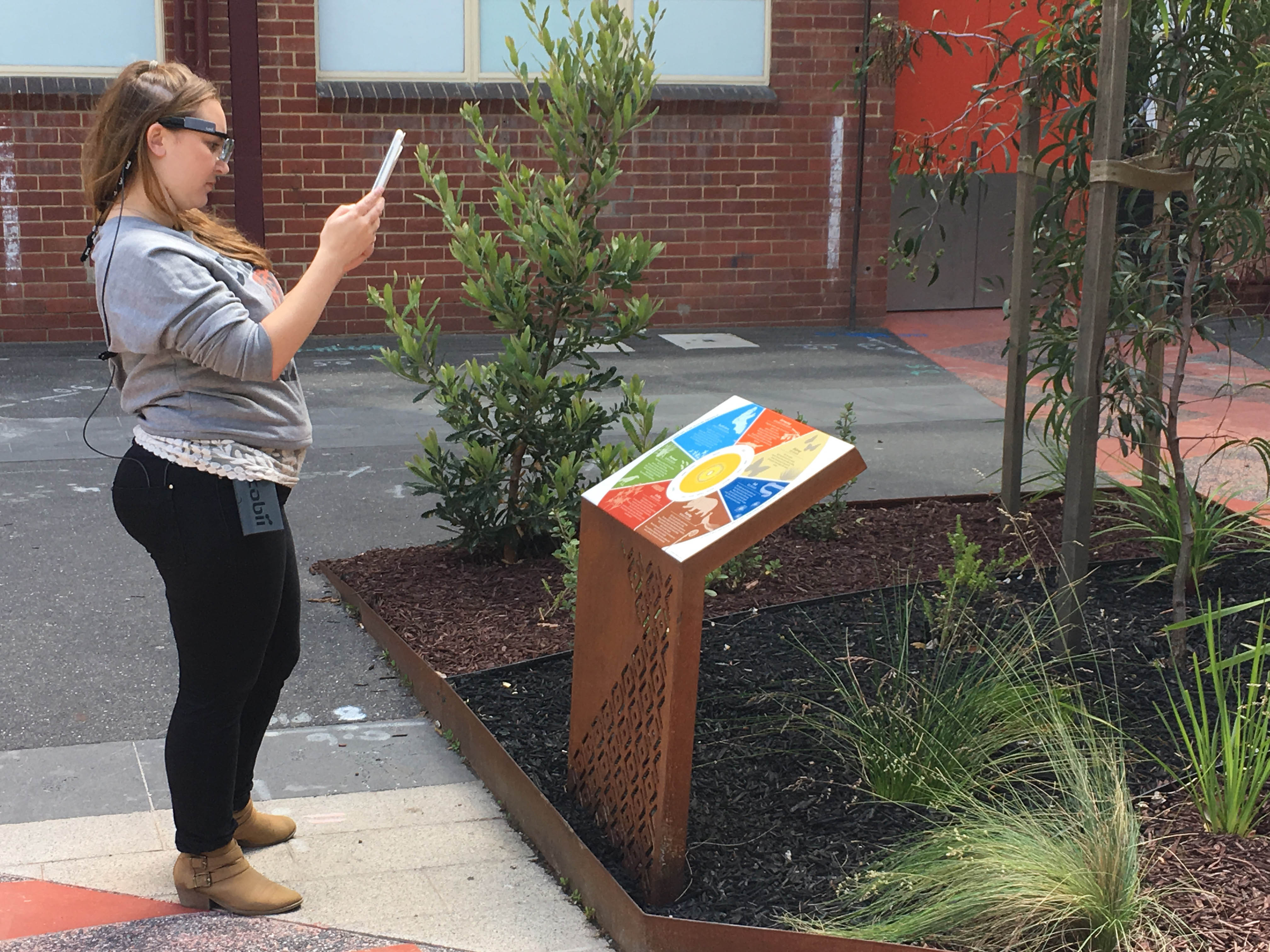
How can different mobile media innovations be usefully applied to understand the complex relationship between people, place and technologies? #SiteAnalytics is using data capture technology to solve environmental and technological challenges. More specifically, we’re using maps, mobile media and apps to generate new understandings about consumer behavior, site visitations and target audience reach and impact. We’re using this information to examine the usefulness of big data and mobile data capture technologies, and to translate this knowledge into practical and relevant solutions for industry.
If you would like to get involved with this project, fill out the form below or reach out to project leaders via the contact info provided alongside each bio.
People
Olivia Guntarik
Senior Lecturer, Design and Social Context
School: Media and Communication
+61 3 9925 1911
RMIT staff profile
olivia.guntarik@rmit.edu.au
Dr Olivia Guntarik is interested in the relationship between people, places and technologies. She has co-designed and curated place-based cultural walking trails with Indigenous community groups, using mobile apps as self-guided digital tour guides, and as a way to commemorate sites of historical significance. She has led numerous industry-based research projects that bring together writers, artists, designers and digital experts with geographers, sociologists, ethnographers and educators. She was awarded two distinguished Creative Victoria funding initiatives, co-supported through the Department of Education and Training under the Virtual Creative Professionals in Schools program, to provide schools in rural and regional locations with the highest quality creative and digital learning experiences. Research outcomes included the development of interactive mobile apps and site-specific public installations, providing new ways to document and understand user engagement, participation and impact.
Cultural Value and Impact Network (CVIN)
Interdisciplinary Collaboration and Inventive Methods
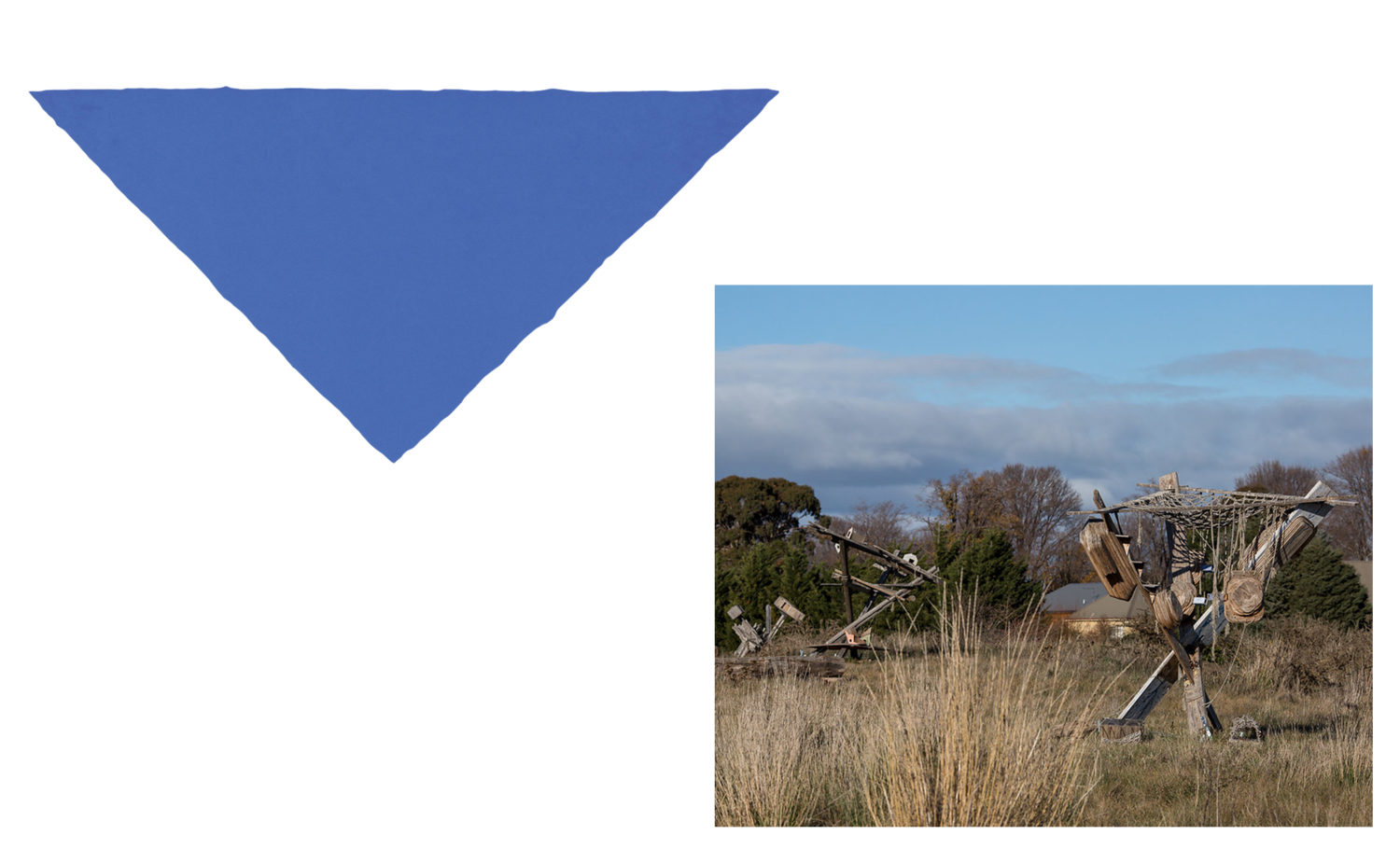
The Cultural Value and Impact Network (CVIN) is building RMIT University’s expertise in interdisciplinary collaboration and inventive methods for articulating, measuring, evaluating cultural value and social impact. With practitioners and academics from across the University, we are building strong creative teams that use new interdisciplinary methods attuned to cultural complexity and diverse communities to enable high impact research partnerships with the arts and cultural sectors, government and NGO community. We have been mapping the capabilities with our colleagues in Art, Economics, Education, Finance and Marketing, Global Urban Studies, Media and Communication, Design, Architecture, and affiliates of DCP ECP, Global Business and Innovation and Social Change. We have collated existing research methods and industry projects through a survey and interviews to identify existing approaches, drivers, current gaps, and future interdisciplinary methodological possibilities for student training and partnerships.
Find out more about the Cultural Value and Impact Network [CVIN.
If you would like to get involved with this project, fill out the form below or reach out to project leaders via the contact info provided alongside each bio.
People
Bronwyn Coate
Senior Lecturer
School: Economics, Finance and Marketing
Dr Bronwyn Coate is a Senior Lecturer in the School of Economics, Finance and Marketing who specialises in cultural economics. Bronwyn’s research involves economic analysis of the arts and creative industries using a range of economic and experimental techniques including approaches from behavioural economics and behavioural science. Areas her research has focused upon include art markets, artists/cultural labour, and cultural/creative industries. Much of Bronwyn’s research is undertaken within mult-idisciplinary teams and focused upon addressing issues with policy relevance for the arts and cultural sector. Bronwyn is a member of a number of a number of research groups including the Cultural Value Impact Network (CVIN), Kinomatics Research Group, Behavioural Business Lab (BBL) and Placemaking Economics Research Group. She is also the current Secretary/Treasurer of the Association for Cultural Economics International (ACEI).
Gretchen Coombs
Post Doctoral Research Fellow
School: Design and Creative Practice
Gretchen Coombs is a Post Doctoral Research Fellow in the Design & Creative Practice Enabling Capability Platform at RMIT. She researches socially engaged art practices in the US, the UK and Australia, with a particular focus on how they are practiced in urban contexts. She’s a core member of the Cultural Value and Impact Network (CVIN) and contributes to Creative Care in the School of Art. Gretchen has a PhD in social and cultural anthropology and a MA in visual criticism: her writing uses a combination of ethnographic methods and visual analysis. She is a co-author of Creative Practice Ethnographies (Rowan & Littlefield 2019) and her monograph, The Lure of the Social: Encounters with Contemporary Artists (Intellect 2021 ) is an experimental ethnography about contemporary artists working at the intersection of art, aesthetics, and politics.
Kit Wise
Professor
School: School of Art
99252219
RMIT staff profile
kit.wise@rmit.edu.au
After graduating from Oxford University and the Royal College of Art with an MFA in Sculpture, Kit Wise received the Wingate Rome Scholarship in Fine Art in 1999, to study at the British School at Rome. He moved to Australia in 2002 and completed his PhD at Monash University in 2012.
Wise has held senior educational leadership and leadership and governance roles since 2008. He is a Board Member for Deans and Directors of Creative Arts (DDCA) and Deputy Chair of the Executive Council of the Australian Council of University Art and Design Schools (ACUADS).
He is Professor of Fine Art and Dean of the School of Art at the RMIT University; and an Adjunct Professor at Monash University and the University of Tasmania. He is represented by Sarah Scout Presents, Melbourne and continues to practice as an artist, art writer and curator.
FireLens
Using mobile phone image-making to improve the safety of planned burning
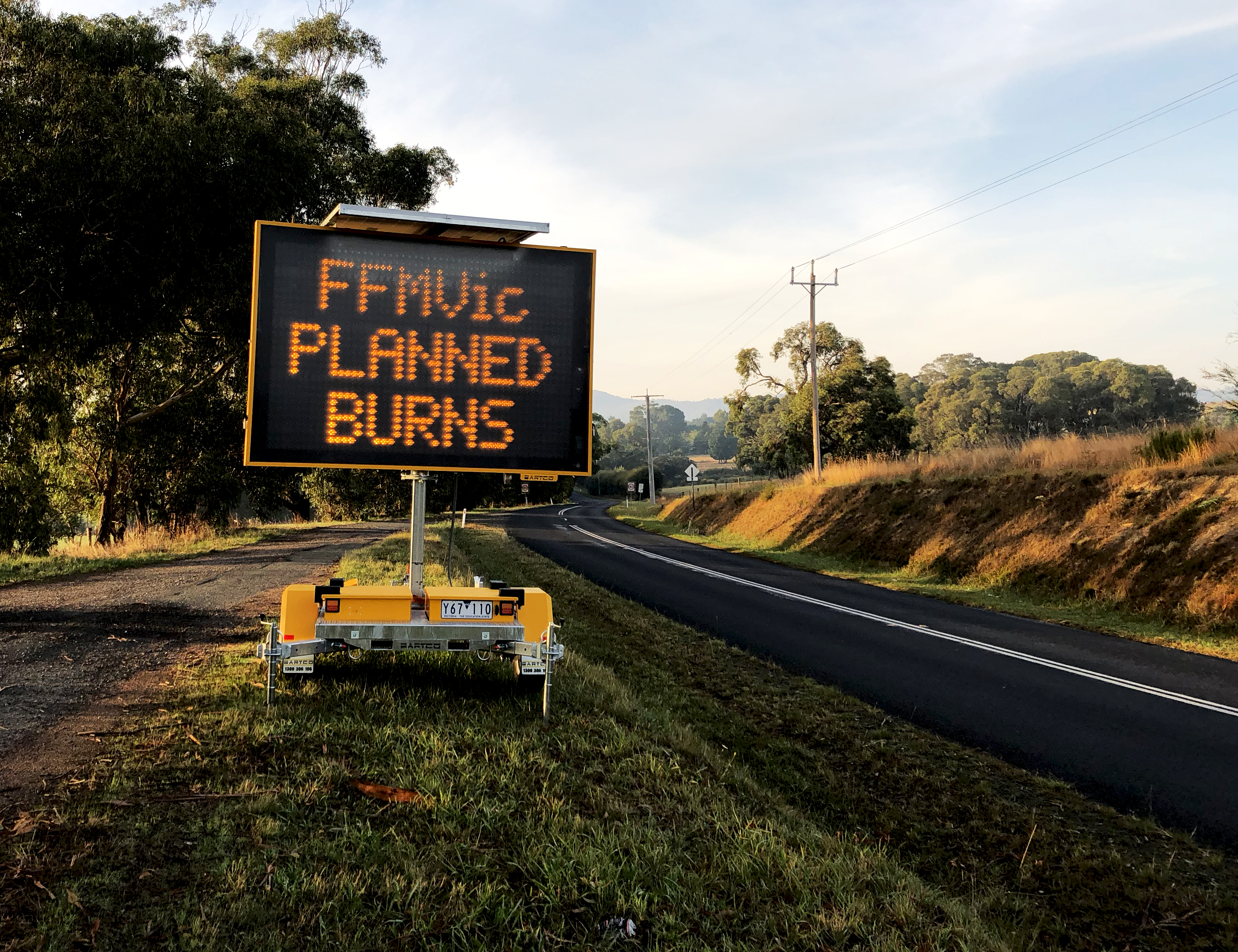
How do organisations manage images to share information and knowledge? The FireLens project is utilising everyday media practices, peer production, mobile and platform technologies to create an image management system for government organisations. Digital photos and videos are composed of imagery, which can communicate complex visual and logistical information.
If you would like to get involved with this project, fill out the form below or reach out to project leaders via the contact info provided alongside each bio.
People
Seth Keen
Lecturer
School: Media and Communication
+61 3 9925 3017
Personal website
seth.keen@rmit.edu.au
Dr Seth Keen is a new media educator, researcher, and designer in the School of Media and Communication. Seth brings together media and co-design practices to engage with contemporary wicked problems. His track record of expertise is in the design of audiovisual media and image-based platforms. He has worked on collaborative projects with academic and industry research partners in the areas of development aid, cultural geography, social services and disaster resilience. Seth is a winner of a prestigious Good Design Australia Award in Social Impact, 2018.
Seth Keen is interested in talking to ARC Linkage collaborators in the areas of Service Design, Computer Science (mobile applications, cloud-based systems) and Bushfire Fuel Management.
The Future of Museum Audiences I
Social Media, Digital Wayfaring and Museum Audiences
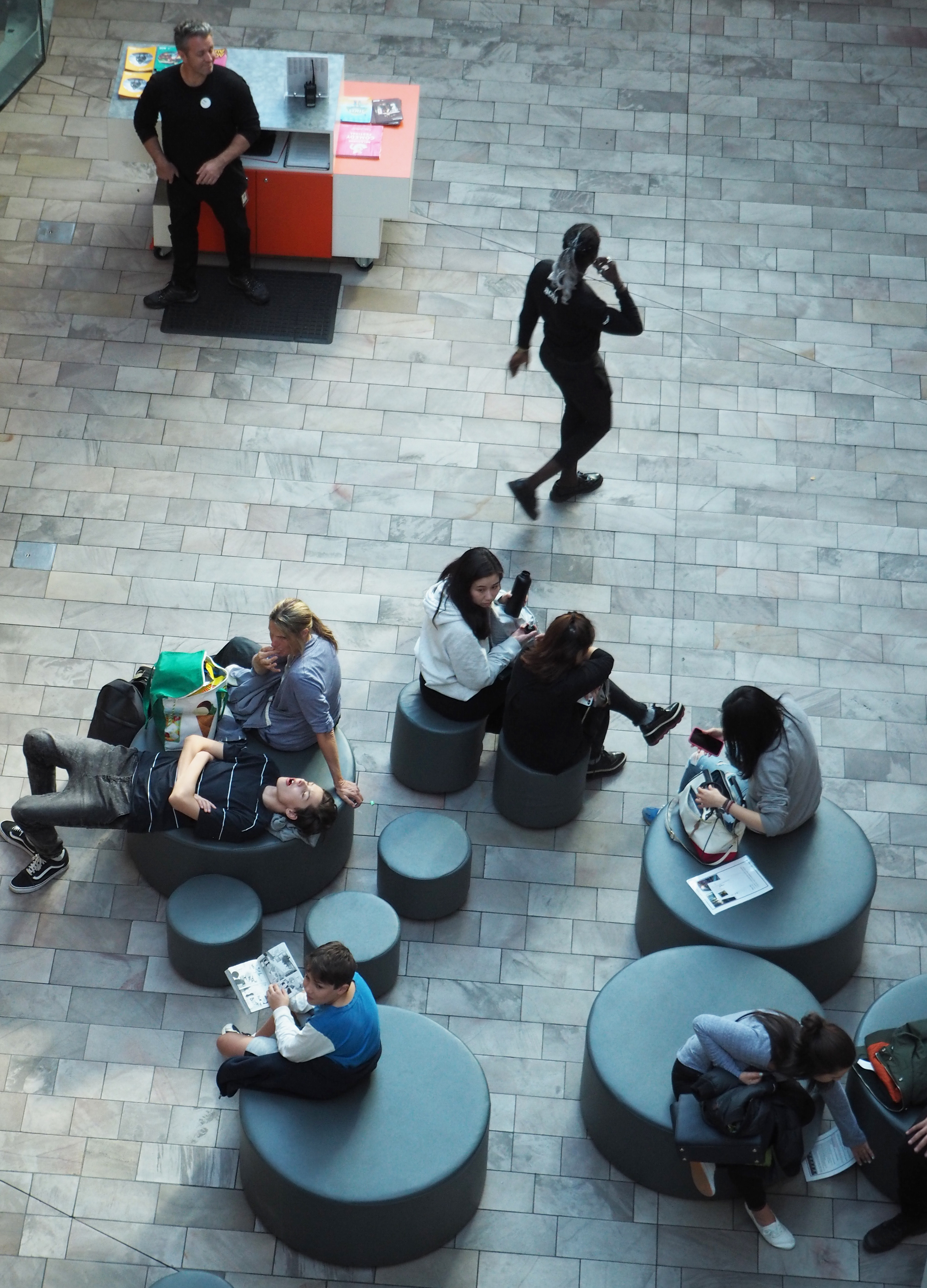
This project explored how museums can engage with social media platforms beyond the blunt instrumentalization of hashtags, likes and follows, to co-create and co-future inventive and responsive engagements with and for diverse and intergenerational museum audiences. Deploying the notion of digital wayfaring that acknowledges that digital, social and material worlds are interconnected, the project used ethnographic techniques in the context of the Australian Centre for the Moving Image (ACMI). Ethnography provides insight into practice and lived experience — dynamic processes that big data can’t address.
If you would like to get involved with this project, fill out the form below or reach out to project leaders via the contact info provided alongside each bio.
People
Larissa Hjorth
Distinguished Professor and Director, Design and Creative Practice
School: Enabling Capability Platforms
Larissa Hjorth is a digital ethnographer, artist, Distinguished Professor and director of the Design & Creative Practice ECP platform at RMIT University. With Professor Heather Horst, she co-founded the Digital Ethnography Research Centre (DERC). Previously, Hjorth was Deputy Dean, Research & Innovation, in the School of Media & Communication (2013−2016). Hjorth served on the inaugural Australian Research Council (ARC) Engagement & Impact Pilot study assessment panel for humanities and creative practice.
Hjorth studies the socio-cultural dimensions of mobile media and play practices in the Asia-Pacific region with an emphasis on interdisciplinary, collaborative and cross-cultural approaches. She has published a dozen co-authored books, edited over a dozen Handbooks/Companions and has over 40 journal articles.
More recently, Hjorth’s work has become concerned with how we can bring creative, social and design solutions to the growing ageing populations and, in turn, how we might consider scenarios of what it means to die well. She is also studying how our “more-than-human” companions can teach us about new media in everyday life. Hjorth’s last book, Haunting Hands (Oxford Uni Press) looked at how mobile media is being deployed in situations of grief and trauma, her previous book explored how art practice can teach us new acumen into the climate change debate.
Hjorth’s books include Haunting Hands (with Cumiskey 2017), Screen Ecologies (with Pink, Sharp & Williams 2016), Digital Ethnography (Pink et al. 2016) Mobile Media in the Asia-Pacific (2009), Games & Gaming (2010), Online@AsiaPacific (with Arnold 2013), Understanding Social Media (with Hinton 2013), and Gaming in Locative, Social and Mobile Media (with Richardson 2014).
Jacina Leong
PhD candidate
School: Media and Communication
Jacina Leong is an artist-curator and PhD candidate in the School of Media and Communications, RMIT. Her research explores critical-creative and careful curatorial approaches to social innovation practices by museums and galleries.
Over the past decade, she has worked in hybrid new media spaces, universities, national and international festivals, regional museums and galleries, libraries and schools — to vision and deliver a diverse range of trans-disciplinary engagement programs, via highly collaborative, experimental and site-responsive processes. Most recently, Jacina was curator for Robotronica, project lead and founding member of the Guerrilla Knowledge Unit, guest facilitator of the Future Innovators Summit (Ars Electronica Tokyo Initiative), and co-curator of the provocation, Curating In The Age of Automation (RMIT & Ritsumeikan University, Kyoto).
From 2012 to 2017, Jacina worked at The Cube (QUT), establishing the inaugural STEAM engagement program for school and university students, educators and pre-service teachers. This program involved key collaborations with local, national and international organisations including Ars Electronica, LEGO Education, and Brisbane City Council. She has also worked in public program development at the Ipswich Art Gallery, collaborative learning strategy in universities, gallery management at Jan Murphy Gallery, and was advisor to the inaugural Make Nice at VIVID Festival.
Understanding Roblox Play
We seek young Roblox players to interview!
We are seeking participants between the ages of 9 and 18 who play Roblox for one hour studies.
Roblox is a multiplayer online platform and game creation system. By enabling its users to playfully design and share their own games, as well as to play games created by others, Roblox attracts millions of young players each year. Despite its growing presence, very little research into Roblox play in Australia has taken place. So in this study, we aim to examine how young people incorporate Roblox play in their social and everyday lives. This is the first study to examine the social uses of Roblox play gaming in Australia, and with it, we aim to understand the Roblox phenomenon as a new model of social play within contemporary games culture.
Our study involves two methods of collecting data: Observation and/or Interview.
-
Observation
For half an hour, we observe individual participants as they play Roblox at home. We ask brief questions about how they interact with the game. With prior permission, we may photograph players or their screens as visual evidence to show exactly how participants are interacting with devices and screens. This is crucial in determining the tactile, gestural and haptic nature of their play. - Interview
For half an hour, we talk with participants about their game play. Topics covered in the interview with players may include the following:
• Do you play, or have you played other games in the past?
• Do you use Roblox as a social tool? If so, then how?
• Do you play Roblox with friend and/or family members?
• If you were to explain why Roblox matters to a non-player, what would you say?
You can choose to only do the interview and not the observation if you wish. All participation is entirely voluntary and completely anonymous. Your privacy is our concern.
Through this research, we hope to enrich community and policy understanding of the media literacies and social inclusion practices emerging in and around Roblox. We anticipate that this may inform media effects debates and heighten understanding of games as a core aspects of contemporary everyday practice.
You can find our more about the research here.
Want to be involved?
It’s easy. Just email the research contact Dr Hugh Davies:
hugh.davies@rmit.edu.au
If you would like to get involved with this project, fill out the form below or reach out to project leaders via the contact info provided alongside each bio.
People
Larissa Hjorth
Distinguished Professor and Director, Design and Creative Practice
School: Enabling Capability Platforms
Larissa Hjorth is a digital ethnographer, artist, Distinguished Professor and director of the Design & Creative Practice ECP platform at RMIT University. With Professor Heather Horst, she co-founded the Digital Ethnography Research Centre (DERC). Previously, Hjorth was Deputy Dean, Research & Innovation, in the School of Media & Communication (2013−2016). Hjorth served on the inaugural Australian Research Council (ARC) Engagement & Impact Pilot study assessment panel for humanities and creative practice.
Hjorth studies the socio-cultural dimensions of mobile media and play practices in the Asia-Pacific region with an emphasis on interdisciplinary, collaborative and cross-cultural approaches. She has published a dozen co-authored books, edited over a dozen Handbooks/Companions and has over 40 journal articles.
More recently, Hjorth’s work has become concerned with how we can bring creative, social and design solutions to the growing ageing populations and, in turn, how we might consider scenarios of what it means to die well. She is also studying how our “more-than-human” companions can teach us about new media in everyday life. Hjorth’s last book, Haunting Hands (Oxford Uni Press) looked at how mobile media is being deployed in situations of grief and trauma, her previous book explored how art practice can teach us new acumen into the climate change debate.
Hjorth’s books include Haunting Hands (with Cumiskey 2017), Screen Ecologies (with Pink, Sharp & Williams 2016), Digital Ethnography (Pink et al. 2016) Mobile Media in the Asia-Pacific (2009), Games & Gaming (2010), Online@AsiaPacific (with Arnold 2013), Understanding Social Media (with Hinton 2013), and Gaming in Locative, Social and Mobile Media (with Richardson 2014).
Hugh Davies
Postdoctoral Research Fellow
School: Games
Hugh Davies is an artist, curator and researcher of games and play. His practice explores histories of media devices and cultures of games in the Asia Pacific Region. Awarded a PhD in Art, Design and Architecture from Monash University in 2014, Hugh’s studies in game cultures have been supported with fellowships from Tokyo Art and Space, M+ Museum of Visual Culture and the Hong Kong Design Trust. Hugh is currently a postdoctoral research fellow at RMIT in Melbourne, Australia.
Being Wiradjuri Together
Co-designing self determination
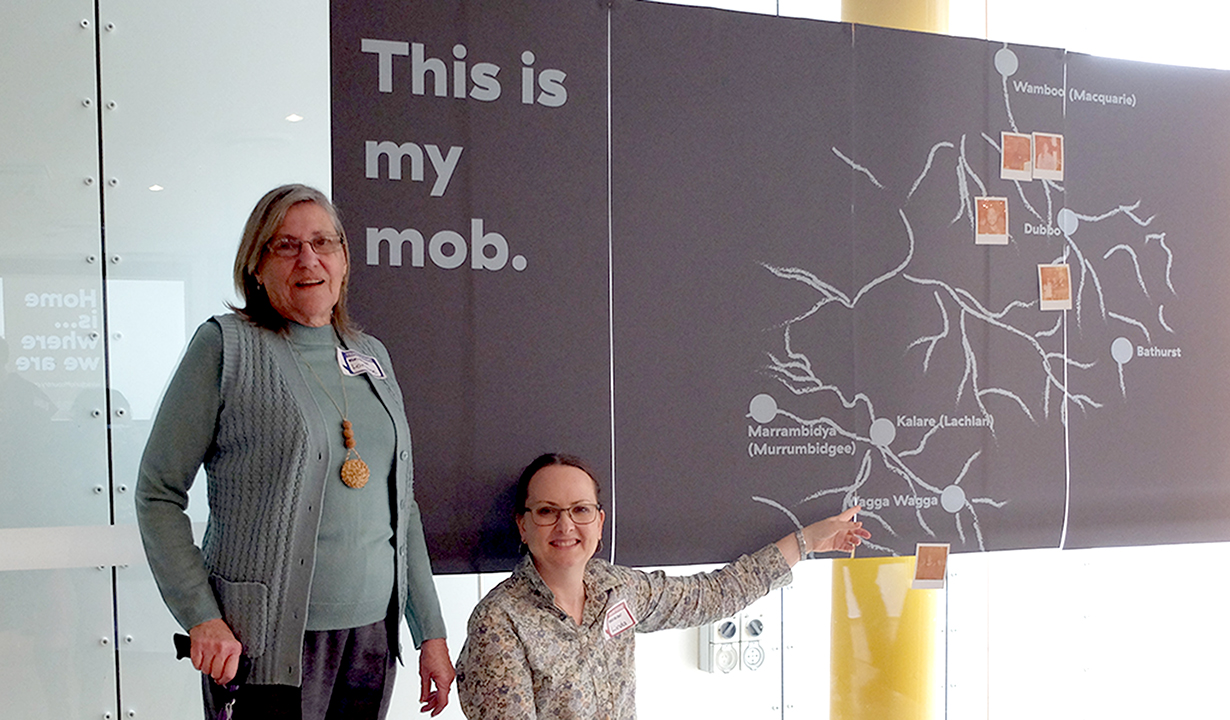
What does it mean to be non-Indigenous and design with, and in response to, Indigenous peoples and knowledge? How can design be of substantial, long-lasting benefit to Indigenous people?
Being Wiradjuri Together is about Wiradjuri people who are self-determining — renewing cultural practices and expressing what it means to be Wiradjuri. This is catalyzed through co-designing with Wiradjuri to create various mechanisms — print, video, social media, digital platform and community events — to connect, share and be Wiradjuri together.
If you would like to get involved with this project, fill out the form below or reach out to project leaders via the contact info provided alongside each bio.
People
Peter West
Lecturer, Communication Design
School: Media and Communication
Peter West is a Communication Design lecturer and PhD candidate. He has a diverse teaching practice which moves across areas such as communications strategy, art direction and design for social change. He draws upon practical industry experience as both a freelance art director and copy writer within both multinational communications agencies and health related communications strategies within the not for profit sector.
His research focuses on ways in which Non-Indigenous creative practitioners can better understand their subject position in relation to Indigenous sovereignty. West is as a chief investigator on Sovereign Weaving Project: ‘Practicing Sovereign Relations through Weaving a Treaty’. The project seeks to support Indigenous Nations to practice their sovereignty, through the realisation of a woven treaty as the conclusion of their diplomatic responsibilities.
Canadian & Australian Book Industries Conversation
Exploring new collaborative opportunities in publishing
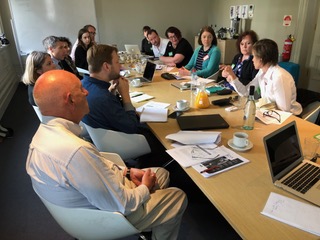
How healthy is the bookselling and publishing industry in Australia? And what are the key reasons for this state of wellbeing (or illness)?
Canadian and Australian Book Industries Conversation (CABIC) brings together leading academics and industry figures to explore themes important to Australian and Canadian authors, illustrators and publishers, including the importance of local content, the book industry policy climate, and regulatory changes and challenges.
If you would like to get involved with this project, fill out the form below or reach out to project leaders via the contact info provided alongside each bio.
People
Julienne Van Loon
Senior Research Fellow, Design and Social Context
School: Media and Communication
+61 3 9925 9564
RMIT staff profile
julienne.vanloon@rmit.edu.au
Dr Julienne van Loon is a Vice Chancellor’s Senior Research Fellow with non/fictionLab, and a leading Australian novelist and essayist. Her first novel, Road Story, won The Australian/Vogel’s award in 2005 and was shortlisted for the WA Premier’s Award for Fiction and the Commonwealth Writers’ Prize Best First Book Award (Asia and Pacific). She has held residencies at various international arts organisations and universities, including the University of Iowa, where she was sponsored by the Paul and Hauling Engle Fund to take part in the International Writing Program in 2017. van Loon co-edits the leading scholarly Creative Writing journal TEXT, and is a peer-assessor for the Australia Council for the Arts. Her forthcoming essay collection, The Thinking Woman, includes interviews with key women thinkers from the Australia, Europe and the United States. Her scholarly research interests include the role of play in research and creative practice.
Connecting Insights around Care-at-a-distance
Concept-generation workshop with Telstra
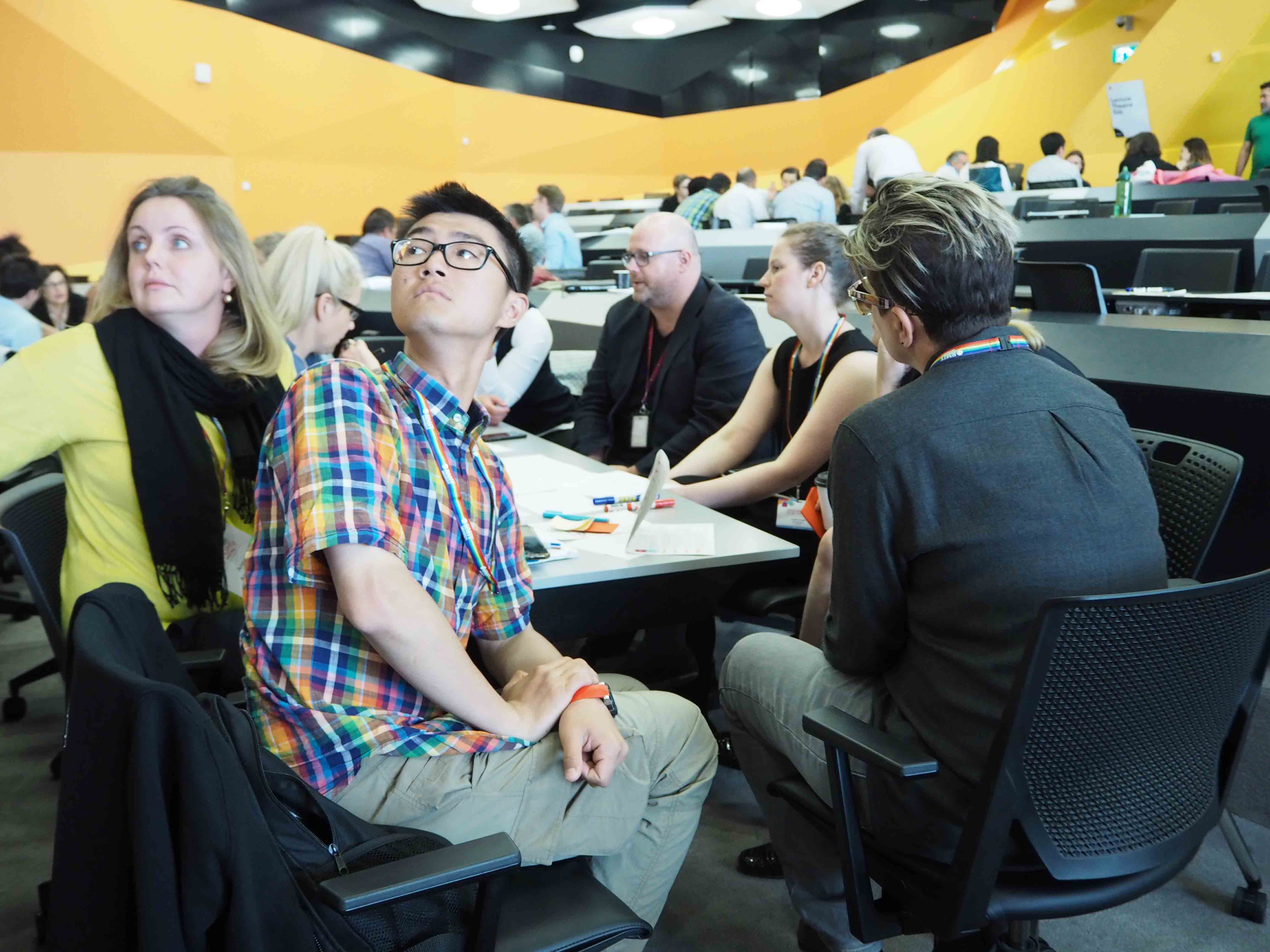
As part of the inaugural Engaging for Impact conference, the DCP ECP and Telstra ran a concept-generation workshop which brought together expertise around the creative, social, cultural, educational and ethnographic dimensions of technology and care to provide greater insights into practices now and in the future. The workshop considered some of the challenges and opportunities in the emergent fields of locative media, intergenerational care-at-a-distance, friendly surveillance and assisted living. Much of the discussion encircled key paradoxes around the following concepts:
- vulnerable agency (elderly, young children, animals);
- security and surveillance;
- privacy vs findability; and
- datafication.
If you would like to get involved with this project, fill out the form below or reach out to project leaders via the contact info provided alongside each bio.
People
Larissa Hjorth
Distinguished Professor and Director, Design and Creative Practice
School: Enabling Capability Platforms
Larissa Hjorth is a digital ethnographer, artist, Distinguished Professor and director of the Design & Creative Practice ECP platform at RMIT University. With Professor Heather Horst, she co-founded the Digital Ethnography Research Centre (DERC). Previously, Hjorth was Deputy Dean, Research & Innovation, in the School of Media & Communication (2013−2016). Hjorth served on the inaugural Australian Research Council (ARC) Engagement & Impact Pilot study assessment panel for humanities and creative practice.
Hjorth studies the socio-cultural dimensions of mobile media and play practices in the Asia-Pacific region with an emphasis on interdisciplinary, collaborative and cross-cultural approaches. She has published a dozen co-authored books, edited over a dozen Handbooks/Companions and has over 40 journal articles.
More recently, Hjorth’s work has become concerned with how we can bring creative, social and design solutions to the growing ageing populations and, in turn, how we might consider scenarios of what it means to die well. She is also studying how our “more-than-human” companions can teach us about new media in everyday life. Hjorth’s last book, Haunting Hands (Oxford Uni Press) looked at how mobile media is being deployed in situations of grief and trauma, her previous book explored how art practice can teach us new acumen into the climate change debate.
Hjorth’s books include Haunting Hands (with Cumiskey 2017), Screen Ecologies (with Pink, Sharp & Williams 2016), Digital Ethnography (Pink et al. 2016) Mobile Media in the Asia-Pacific (2009), Games & Gaming (2010), Online@AsiaPacific (with Arnold 2013), Understanding Social Media (with Hinton 2013), and Gaming in Locative, Social and Mobile Media (with Richardson 2014).
Colored and Patterned Solar Building Skin
Solar Panels for Creative and Sustainable Urban Design
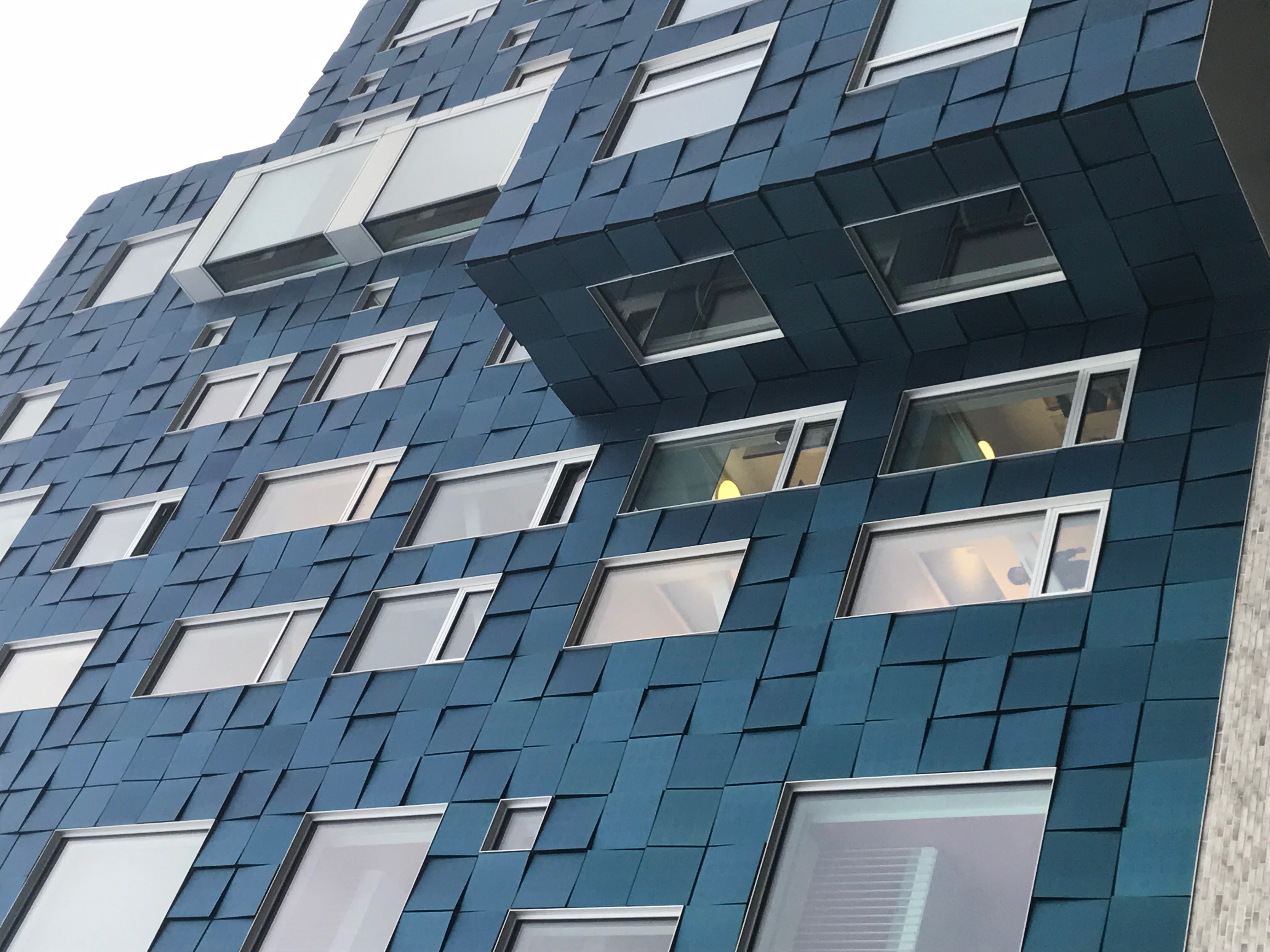
Innovative design of solar modules enables new possibilities for their integration into new and old buildings, historical sites, public urban spaces, landscapes and media façades. When the characteristics of conventional Building Integrated Photovoltaics (BIPV) modules are modified with technological advances in colour and appearance, it opens up a whole new approach to creative, innovative and sustainable urban designs.
RMIT’s Dr Rebecca Yang partnered with City of Bendigo (Aurecon IEA PVPS Task 15 BIPV) for this project to display the approach to using coloured BIPV, wherein good architectural form is given to function and applied to make PV electricity part of our natural and cultural environment. The coloured and patterned solar panels form a paradigm shift in solar applications because of their aesthetic appeal and power generating attributes. These BIPV solutions could be adapted in variety of materials, colours and shapes that can be seen today in the centre of cities, where a diversity of buildings from different eras and construction solutions coexist with each other.
If you would like to get involved with this project, fill out the form below or reach out to project leaders via the contact info provided alongside each bio.
People
Rebecca Yang
Senior Lecturer
School: Construction Management
Rebecca Yang has developed a strong and passionate commitment to industry-focused research and teaching. Her research resonates with RMIT’s vision of transforming the built environment to create sustainable and resilient cities, and her current research focuses on solar energy applications in buildings, and construction innovation. She is the leader of Solar Energy Application Group. She is the leader of Solar Energy Application Group and the Australian expert in International Energy Agency PVPS Task 15 BIPV.
Design and Social Innovation in Asia-Pacific Network
Capacity building in the Asia-Pacific region

How does design accompany and accelerate economic growth? Economies within the Asia-Pacific region are facing challenges of balancing economic development with social and cultural sustainability.
Design and Social Innovation in Asia-Pacific (DESIAP) is a learning platform, a community of practice and a network for collaboration and ongoing knowledge sharing for various practitioners, researchers, communities, and professionals working in the Design and Social Innovation (D&SI) space in this region. We facilitate rich exchanges on diverse, culturally respectful and contextually specific approaches to real-world problems.
Visit the DESIAP website.
If you would like to get involved with this project, fill out the form below or reach out to project leaders via the contact info provided alongside each bio.
People
Yoko Akama
Associate Professor, Communication Design Cluster
School: Communication Design
+61 3 9925 2805
RMIT staff profile
yoko.akama@rmit.edu.au
Yoko Akama is a design researcher at RMIT University, Australia. She co-leads the Design and Social Innovation in Asia-Pacific network and Design+Ethnography+Futures research program at RMIT.
Her Japanese heritage has embedded a Zen-informed relational practice to carve a ‘tao’ (path) in design and has published extensively on this topic. This practice is shaped by working with regional communities in Australia in strengthening their resilience for disaster preparedness, and with Indigenous Nations enact their sovereignty and self-determination. She is an Adjunct Fellow of a ecosystem innovation studio, Re:public Japan, and Visiting Fellow at the Centre of Excellence in Media Practice, Bournemouth University. She serves on several editorial boards of international journals, and conference review committees. She is a recipient of several major research grants in Australia and the UK and winner of the prestigious Good Design Australia Awards in 2014.
Design for Wellbeing Network
Working to improve the design of healthcare environments
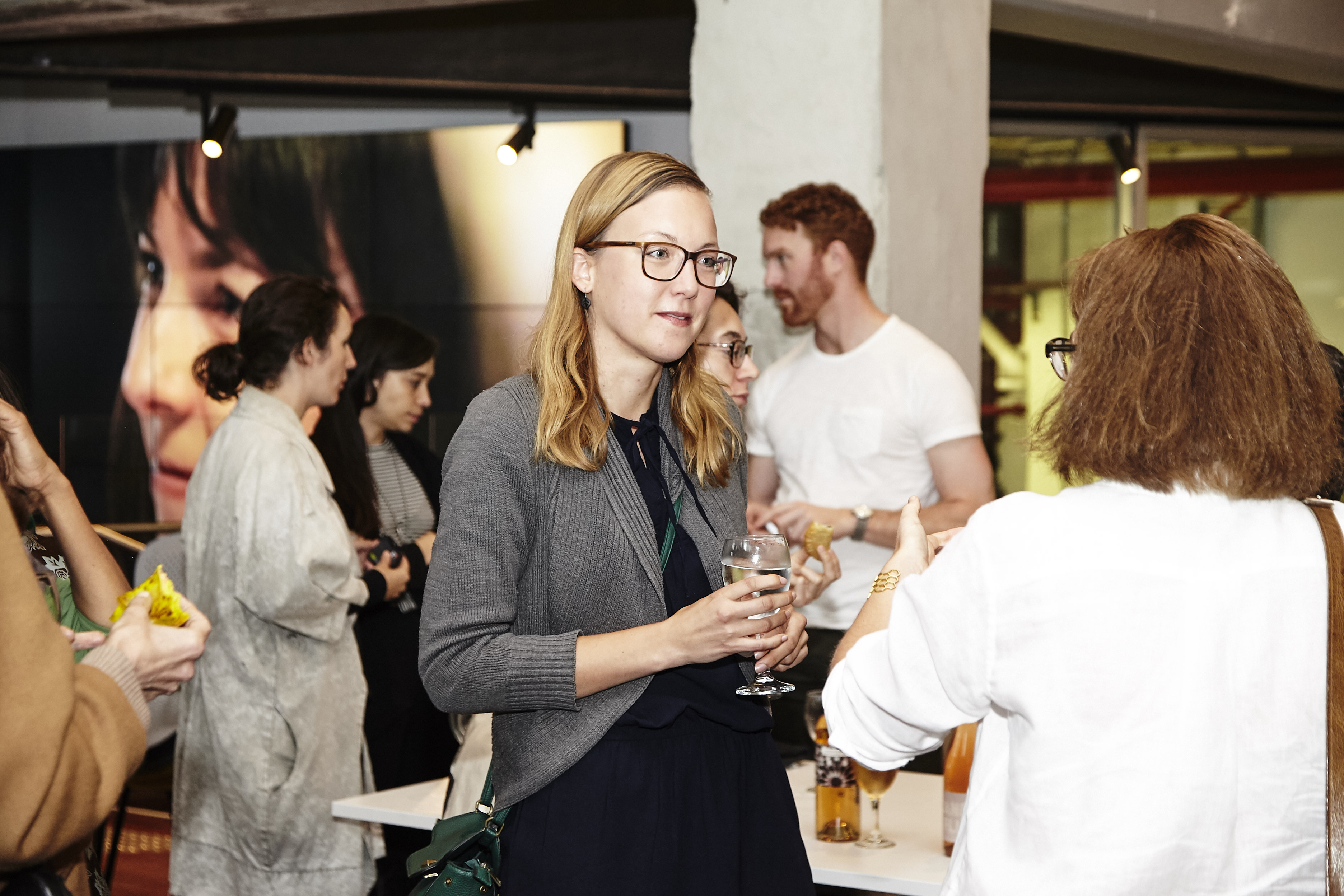
What are the gaps in healthcare design? Focusing specifically on hospitals and other formal healthcare settings, the Design for Wellbeing Network (DfW) aims to improve the understanding of how people experience these services and environments. The group of international and interdisciplinary researchers are working towards improvements in these experiences through rigorous qualitative and practice-based research.
The DfW is committed to deploying their research through partnerships with external organisations such as hospital groups, designers, architects and government.
Visit the DfW website.
If you would like to get involved with this project, fill out the form below or reach out to project leaders via the contact info provided alongside each bio.
People
Developing Game Regions
Exploring regional growth in game cultures and gaming industries in Vietnam
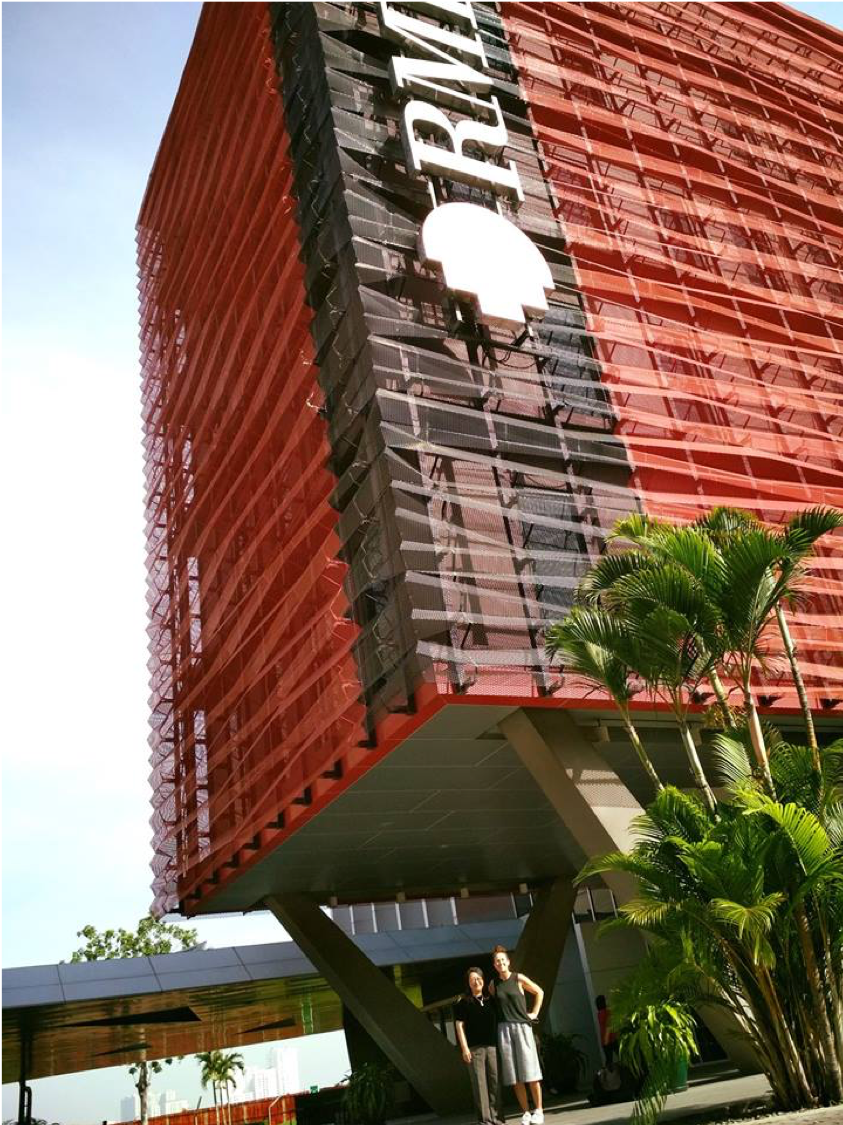
The Developing Games Regions project aims to establish games industry connections and research partners within SE Asia-Oceania. As a thriving sector in SE Asia, this project explores gaming industries in Vietnam. Over 33.9 million people play games in Vietnam, but little is known about these game cultures. RMIT is in a unique position to cultivate enduring relationships with Vietnamese gaming industries as research partners, and cross-institutional scholarship by connecting with leading games experts in SE Asia. Strengthening relationships between RMIT Melbourne/Vietnam, local industries and regional expertise enhances the potential to address the Vietnamese games industry as an emerging market for production and play.
If you would like to get involved with this project, fill out the form below or reach out to project leaders via the contact info provided alongside each bio.
People
Emma Witkowski
Senior Lecturer, Digital Design Cluster
School: Games
+61 3 9925 4756
Personal website
emma.witkowski@rmit.edu.au
Dr Emma Witkowski is the Director for Playable Media and a Lecturer in the School of Media and Communication. As the Program Manager for the Bachelor of Games Design degree, Witkowski teaches theoretical units on Game Cultures and Game Studies.
Witkowski received her PhD in Game Studies in 2012 from the IT University of Copenhagen, Denmark, taking a qualitative exploration of networked high performance play, considered through a lens of sociology and phenomenology, sports and game studies. She has been working in the field of computer game cultures since 2005, the same year she co-founded the Danish state and privately funded initiative Letzplay, a project aimed at increasing young women’s access to ICT’s and computer gaming knowledge.
Her current research looks at various aspects of computer game cultures, including high performance networked teamplay, esports, gender and games and serious leisure practices. She has written and presented on topics such as identity and play, livestreaming and spectatorship, Mega-LANs, running aesthetics, and the phenomenology of high-performance networked teams.
Evaluating Design for Social Innovation
A case study for culturally grounded evaluation
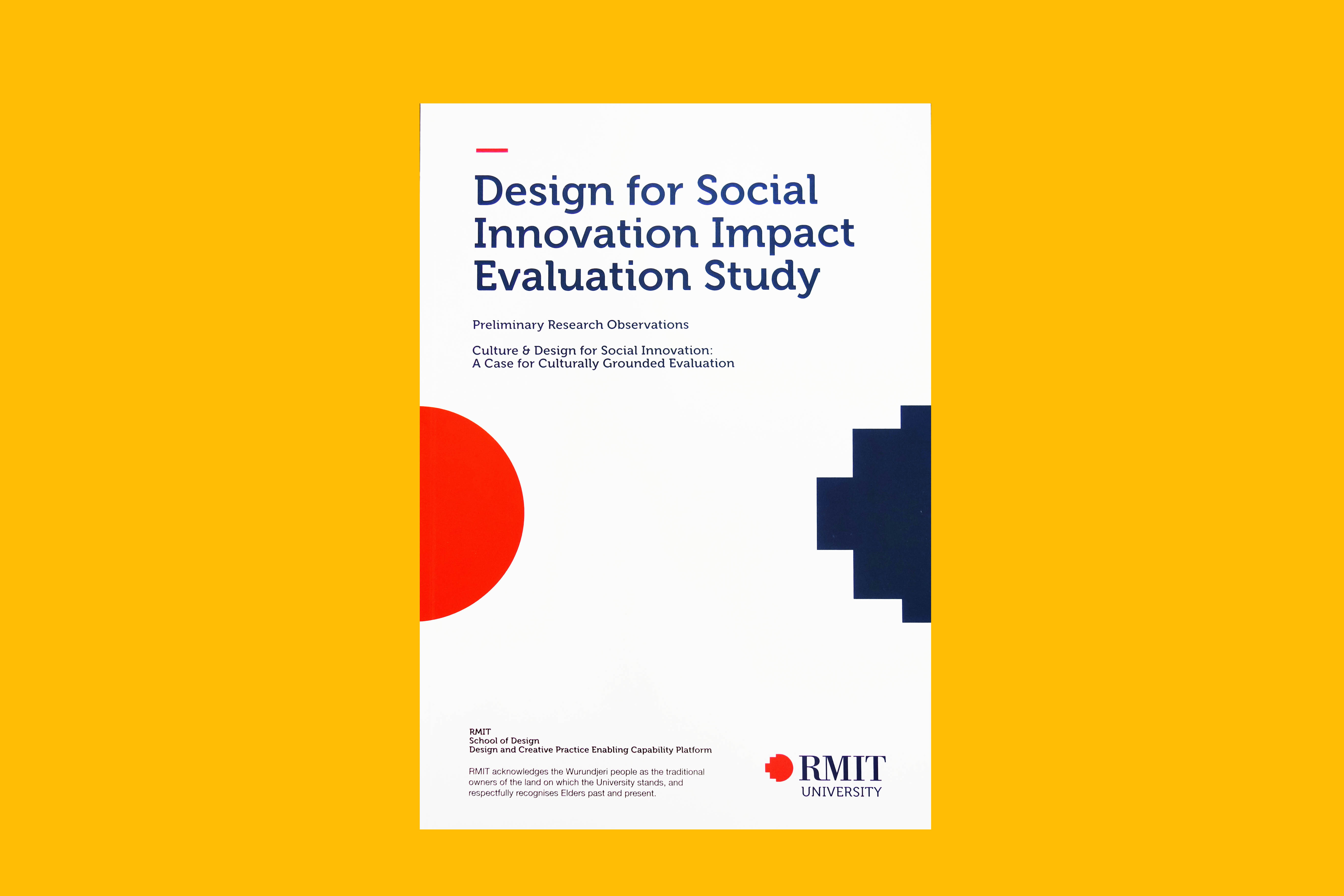
Design always matters, but designing for impact changes lives. For impact to be felt in diverse cultural contexts, we need to understand how cultures need and value design. Design for Social Innovation (DSI) is an approach for working on complex social and environmental challenges. It uses design principles to explore different ways of understanding and responding to those challenges.
Our work helps ensure that projects are of the greatest value to the communities that they are undertaken with, and that researchers are better able to communicate the impact of their projects.
View the report here.
If you would like to get involved with this project, fill out the form below or reach out to project leaders via the contact info provided alongside each bio.
People
Laurene Vaughan
Professor and Dean
School: School of Design
Professor Laurene Vaughan is Dean of the School of Design at RMIT. She is internationally recognised as a leader in interdisciplinary and applied design research and pedagogy. Professor Laurene Vaughan has a diverse research and teaching practice covering the areas of design, communication, fashion and embedded research in diverse industry sectors. Laurene currently also contributes to the University research community through being a Research Leader in the RMIT Design Research Institute.
Games of Being Mobile
First National Survey of Mobile Games in Australia

This project contextualised mobile games as part of broader practices of play, both in the home and extending out into neighbourhoods, urban public spaces and online networks. The Games of Being Mobile project followed nearly sixty households over three years (2013– 2016) in five of Australia’s capital cities: Melbourne, Perth, Adelaide, Sydney and Brisbane. It is the first national survey of mobile games.
The project identified the diverse agencies of mobile media users and players, and the multiple modalities of play. As we face a challenging future, it is our hope that the power of mobile games and playful practices can fuel innovative forms of care, mindful engagement and ethical sociality.
View the report here.
If you would like to get involved with this project, fill out the form below or reach out to project leaders via the contact info provided alongside each bio.
People
Larissa Hjorth
Distinguished Professor and Director, Design and Creative Practice
School: Enabling Capability Platforms
Larissa Hjorth is a digital ethnographer, artist, Distinguished Professor and director of the Design & Creative Practice ECP platform at RMIT University. With Professor Heather Horst, she co-founded the Digital Ethnography Research Centre (DERC). Previously, Hjorth was Deputy Dean, Research & Innovation, in the School of Media & Communication (2013−2016). Hjorth served on the inaugural Australian Research Council (ARC) Engagement & Impact Pilot study assessment panel for humanities and creative practice.
Hjorth studies the socio-cultural dimensions of mobile media and play practices in the Asia-Pacific region with an emphasis on interdisciplinary, collaborative and cross-cultural approaches. She has published a dozen co-authored books, edited over a dozen Handbooks/Companions and has over 40 journal articles.
More recently, Hjorth’s work has become concerned with how we can bring creative, social and design solutions to the growing ageing populations and, in turn, how we might consider scenarios of what it means to die well. She is also studying how our “more-than-human” companions can teach us about new media in everyday life. Hjorth’s last book, Haunting Hands (Oxford Uni Press) looked at how mobile media is being deployed in situations of grief and trauma, her previous book explored how art practice can teach us new acumen into the climate change debate.
Hjorth’s books include Haunting Hands (with Cumiskey 2017), Screen Ecologies (with Pink, Sharp & Williams 2016), Digital Ethnography (Pink et al. 2016) Mobile Media in the Asia-Pacific (2009), Games & Gaming (2010), Online@AsiaPacific (with Arnold 2013), Understanding Social Media (with Hinton 2013), and Gaming in Locative, Social and Mobile Media (with Richardson 2014).
Hugh Davies
Postdoctoral Research Fellow
School: Games
Hugh Davies is an artist, curator and researcher of games and play. His practice explores histories of media devices and cultures of games in the Asia Pacific Region. Awarded a PhD in Art, Design and Architecture from Monash University in 2014, Hugh’s studies in game cultures have been supported with fellowships from Tokyo Art and Space, M+ Museum of Visual Culture and the Hong Kong Design Trust. Hugh is currently a postdoctoral research fellow at RMIT in Melbourne, Australia.
Ingrid Richardson
Professor
School: Media and Communication
Professor Ingrid Richardson has been teaching, supervising and researching in the fields of digital media, mobile media and games for over twenty years. She has a broad interest in the human-technology relation and has published widely on the phenomenology of games and mobile media, digital ethnography and innovative research methods, the relation between technology use and wellbeing, and the cultural effects of urban screens, wearable technologies, virtual and augmented reality, remix culture and web-based content creation and distribution. Ingrid has led or co-led 14 funded research projects, the most recent being an ARC DP [Games of Being Mobile] with Larissa Hjorth. She is contributing co-editor of Studying Mobile Media (Routledge, 2011) and co-author of Gaming in Social, Locative and Mobile Media (Palgrave, 2014), Ambient Play (MIT, 2020), Understanding Games and Game Cultures (Sage, 2020), Exploring Minecraft: Ethnographies of Play and Creativity (Palgrave, forthcoming), and Mobile Media and the Urban Night (Palgrave, forthcoming). Ingrid brings ten years’ experience in university-level HDR management and during this time has actively championed and supported creative methods and practice-led postgraduate research. Over the past five years she has also developed a passion for teaching critical web literacy skills to undergraduate students across all disciplines.
DCP HDR Working Group on Wellbeing and Belonging
Understanding HDR Wellbeing in and post COVID-19

Over the past few years, studies internationally have identified the power of the arts to improve wellbeing and health. At RMIT, we specialise at arts-based, codesign and ethnographic approaches to address social, ecological and health challenges. The DCP HDR Working Group on Wellbeing and Belonging are developing short term and long term projects around understanding HDR wellbeing and developing human-centred approaches to digital innovation. It seeks to address issues around the 2020 crisis (bushfires, climate change and COVID-19) and how we can empower HDRs for sustaining futures.
Within the working group, there is expertise in terms of ethnographic, user-experience methods, co-design frameworks, digital media curriculum and evaluation. This working group is researching the role of social and digital innovation for addressing impact of social isolation and associated emotional distress on wellbeing of HDR students during the COVID-19 crisis. The findings of this study will be deployed for future strategies for HDR students wellbeing.
If you would like to get involved with this project, fill out the form below or reach out to project leaders via the contact info provided alongside each bio.
People
Anne Harris
Associate Professor and Principal Research Fellow, Design and Social Context
School: Education
+61 3 9925 4459
RMIT staff profile
anne.harris@rmit.edu.au
Dr Anne M. Harris, PhD is an Associate Professor and Vice Chancellor’s Principal Research Fellow at RMIT University, and an Australian Research Council Future Fellow (2017 – 2021) studying intercultural creativity. Anne is an Honorary Research Fellow at University of Nottingham (UK) and an Adjunct Professor at Monash University (Australia).
Their research is in the areas of gender, creativity, diversity, performance and emerging digital ethnographies. Anne is a native New Yorker and has worked professionally as a playwright, teaching artist and journalist in the USA and Australia. They have authored or co-authored over 60 articles and 13 books on creativity, arts, and non-dominant culture formations, the latest being Queering Families/Schooling Publics: Keywords (with Stacy Holman Jones, Sandra Faulkner, and Eloise Brook, Routledge 2017). Anne is the creator and series editor of the Palgrave book series Creativity, Education and the Arts, and recently completed an Australian Research Council DECRA on the commodification of creativity.
Catherine Gomes
Associate Professor
School: Media and Communication
Catherine Gomes is an Associate Professor in RMIT University’s School of Media and Communication. Catherine is an ethnographer whose work contributes to the understanding of the evolving migration, mobility and digital media nexus. As a migration and mobility scholar, Catherine specialises on the social, cultural and communication spaces of transient migrants, especially international students, their wellbeing, their social groups and their digital engagements. Catherine’s work covers the themes of identity, ethnicity, race, memory and gender. She is a specialist on the Asia-Pacific with Australia and Singapore being significant fieldwork sites. Catherine has experience in mixed methods and interdisciplinary research.
Catherine’s work on transient migration and digital technology is advancing work on migration and mobility because of the transient-digital nexus she pioneers. Moreover, as founding editor of Transitions: Journal of Transient Migration Migration (Intellect), editor of the Culture, Media and Communication in Migrant Societies book series (Amsterdam University Press) and lab leader of the Migration and Digital Media Research Lab housed in the Digital Ethnography Research Centre (DERC), Catherine facilitates intellectual discussions with the aim of generating practical outcomes to address and assist policymakers and stakeholders interested in transient migration and international mobility.
Larissa Hjorth
Distinguished Professor and Director, Design and Creative Practice
School: Enabling Capability Platforms
Larissa Hjorth is a digital ethnographer, artist, Distinguished Professor and director of the Design & Creative Practice ECP platform at RMIT University. With Professor Heather Horst, she co-founded the Digital Ethnography Research Centre (DERC). Previously, Hjorth was Deputy Dean, Research & Innovation, in the School of Media & Communication (2013−2016). Hjorth served on the inaugural Australian Research Council (ARC) Engagement & Impact Pilot study assessment panel for humanities and creative practice.
Hjorth studies the socio-cultural dimensions of mobile media and play practices in the Asia-Pacific region with an emphasis on interdisciplinary, collaborative and cross-cultural approaches. She has published a dozen co-authored books, edited over a dozen Handbooks/Companions and has over 40 journal articles.
More recently, Hjorth’s work has become concerned with how we can bring creative, social and design solutions to the growing ageing populations and, in turn, how we might consider scenarios of what it means to die well. She is also studying how our “more-than-human” companions can teach us about new media in everyday life. Hjorth’s last book, Haunting Hands (Oxford Uni Press) looked at how mobile media is being deployed in situations of grief and trauma, her previous book explored how art practice can teach us new acumen into the climate change debate.
Hjorth’s books include Haunting Hands (with Cumiskey 2017), Screen Ecologies (with Pink, Sharp & Williams 2016), Digital Ethnography (Pink et al. 2016) Mobile Media in the Asia-Pacific (2009), Games & Gaming (2010), Online@AsiaPacific (with Arnold 2013), Understanding Social Media (with Hinton 2013), and Gaming in Locative, Social and Mobile Media (with Richardson 2014).
Ingrid Richardson
Professor
School: Media and Communication
Professor Ingrid Richardson has been teaching, supervising and researching in the fields of digital media, mobile media and games for over twenty years. She has a broad interest in the human-technology relation and has published widely on the phenomenology of games and mobile media, digital ethnography and innovative research methods, the relation between technology use and wellbeing, and the cultural effects of urban screens, wearable technologies, virtual and augmented reality, remix culture and web-based content creation and distribution. Ingrid has led or co-led 14 funded research projects, the most recent being an ARC DP [Games of Being Mobile] with Larissa Hjorth. She is contributing co-editor of Studying Mobile Media (Routledge, 2011) and co-author of Gaming in Social, Locative and Mobile Media (Palgrave, 2014), Ambient Play (MIT, 2020), Understanding Games and Game Cultures (Sage, 2020), Exploring Minecraft: Ethnographies of Play and Creativity (Palgrave, forthcoming), and Mobile Media and the Urban Night (Palgrave, forthcoming). Ingrid brings ten years’ experience in university-level HDR management and during this time has actively championed and supported creative methods and practice-led postgraduate research. Over the past five years she has also developed a passion for teaching critical web literacy skills to undergraduate students across all disciplines.
Natalie Hendry
VC Research Fellow
School: Media and Communication
Natalie Hendry is a Vice Chancellor’s Postdoctoral Fellow in the School of Media and Communications. Her research explores everyday social media and digital technology practices in the context of critical approaches to education, mental health, media, wellbeing, youth studies and policy. This brings together her experience prior to academia, working in community education, secondary schools and hospital settings, and consulting for health organisations and industry. Using digital ethnography and creative workshop methods, her postdoctoral research explores emerging and potential online opportunities to enhance digital outreach and media-based support for young people whose parents or adult family members are experiencing mental ill-health.
Renata Kokanovic
Convener, The HEALTH Network; Professor
School: Global, Urban & Social Studies
Professor Renata Kokanovic’s works at the intersections of health, society and medicine, with a particular focus on interdisciplinary mental health research.She combines empirical research with interdisciplinary theoretical and methodological scholarship while collaborating with industry partners and health care users to facilitate greater understanding of lived experiences of health and illness.
She co-founded Healthtalk Australia, a digital repository of health and illness narrative accounts designed to support people experiencing ill health, and inform health and social care delivery and policy.
Ruth De Souza
VC Research Fellow
School: School of Art
Dr Ruth De Souza (FACN) is a Vice-Chancellor’s Fellow at RMIT, based in the School of Art and DCP Research Platform. She is a nurse, academic and a community-engaged researcher in gender, race, health and digital technologies. Ruth’s Fellowship will engage health professionals in finding new ways to understand, co-design and implement sustainable cultural safety initiatives in a range of health contexts in response to health inequities.
Prior to moving to Australia in 2013, Ruth worked at AUT University where she taught in the School of Nursing, led the Bachelor of Health Promotion, and was a Senior Research Fellow at the Centre for Asian and Migrant Health Research. Since her arrival in Australia, Ruth has undertaken a wide range of roles, including leading an undergraduate nursing program at Monash University’s Berwick campus; spearheading a unique community-engaged joint research appointment with North Richmond Community Health exploring how wearables and other digital technologies are perceived by people from culturally and linguistically different backgrounds and co-ordinating an interdisciplinary Data Systems and Society Research Network across the University of Melbourne. Ruth has also investigated the applicability of cultural safety in Australia, working closely with The Congress of Aboriginal and Torres Strait Islander Nurses and Midwives (CATSINaM), presenting at their National Professional Development Conferences and delivering training on cultural safety. She has also undertaken a two-year cultural safety project with cohealth (a not-for-profit community health organisation) and Our Watch who work for the primary prevention of violence against women and their children.
Smartphone use during a crisis
Finding and managing information, emotions and networks in times of crisis
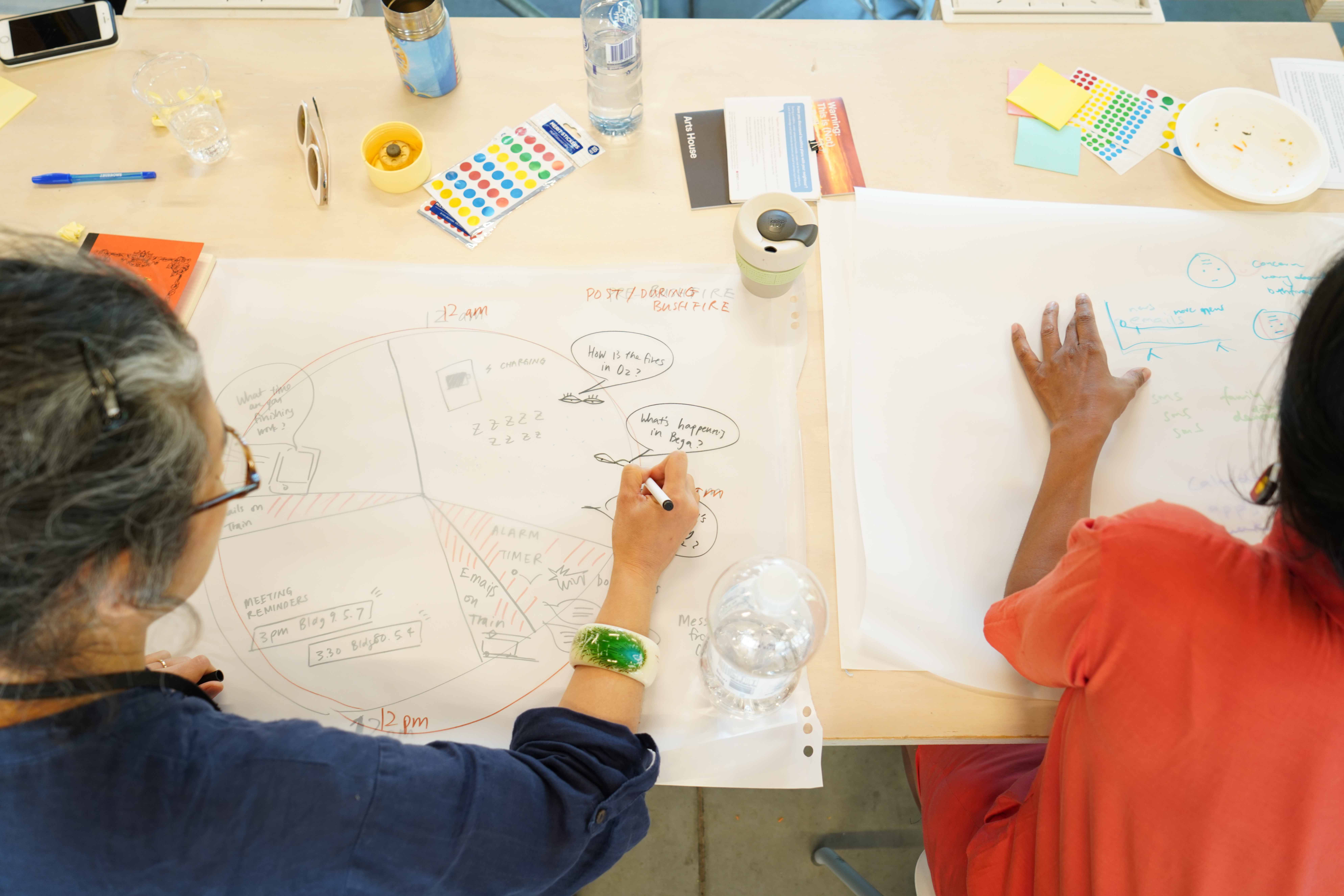
These workshops explored how, as smartphone users, participants were using mobile and non-mobile media to find and manage
information, emotions and networks during the 2019 – 2020 Australian summer bushfire crisis.
Using 3 creative codesign methods, we mapped the key themes, common feelings and practices that emerged during the group discussions. The exercises, and subsequent mapping, generated discussions about key practices and perceptions of how individuals and their communities care during times of crisis. The following preliminary findings emerged:
- Tactics of care
- Care-at-a-distance
- Care literacies
- Direct and indirect affective witnessing
Read the Workshop Summary Report to find out more.
If you would like to get involved with this project, fill out the form below or reach out to project leaders via the contact info provided alongside each bio.
People
Yoko Akama
Associate Professor, Communication Design Cluster
School: Communication Design
+61 3 9925 2805
RMIT staff profile
yoko.akama@rmit.edu.au
Yoko Akama is a design researcher at RMIT University, Australia. She co-leads the Design and Social Innovation in Asia-Pacific network and Design+Ethnography+Futures research program at RMIT.
Her Japanese heritage has embedded a Zen-informed relational practice to carve a ‘tao’ (path) in design and has published extensively on this topic. This practice is shaped by working with regional communities in Australia in strengthening their resilience for disaster preparedness, and with Indigenous Nations enact their sovereignty and self-determination. She is an Adjunct Fellow of a ecosystem innovation studio, Re:public Japan, and Visiting Fellow at the Centre of Excellence in Media Practice, Bournemouth University. She serves on several editorial boards of international journals, and conference review committees. She is a recipient of several major research grants in Australia and the UK and winner of the prestigious Good Design Australia Awards in 2014.
Caitlin McGrane
School: Media and Communication
Caitlin McGrane is a feminist researcher and activist. Her doctoral research investigates how women’s feelings about their smartphone uses and practices can help challenge normative and misogynistic notions of women’s communications. She leads Gender Equity Victoria’s (GEN VIC) ‘Enhancing Online Safety for Women’ project advocating for better support and conditions for women working in media. In 2018 – 2019 she worked with GEN VIC to design a toolkit and a series of videos encouraging prosocial bystander actions on social media. She has worked on projects with the Victorian Trades Hall Council Women’s Team building an online resource to supplement their Gender-Based Violence in the Workplace training package. Her previous research has explored how witnessing anti-feminist harassment can negatively affect individuals’ willingness to publicly identify as feminist and participate in online spaces.
Larissa Hjorth
Distinguished Professor and Director, Design and Creative Practice
School: Enabling Capability Platforms
Larissa Hjorth is a digital ethnographer, artist, Distinguished Professor and director of the Design & Creative Practice ECP platform at RMIT University. With Professor Heather Horst, she co-founded the Digital Ethnography Research Centre (DERC). Previously, Hjorth was Deputy Dean, Research & Innovation, in the School of Media & Communication (2013−2016). Hjorth served on the inaugural Australian Research Council (ARC) Engagement & Impact Pilot study assessment panel for humanities and creative practice.
Hjorth studies the socio-cultural dimensions of mobile media and play practices in the Asia-Pacific region with an emphasis on interdisciplinary, collaborative and cross-cultural approaches. She has published a dozen co-authored books, edited over a dozen Handbooks/Companions and has over 40 journal articles.
More recently, Hjorth’s work has become concerned with how we can bring creative, social and design solutions to the growing ageing populations and, in turn, how we might consider scenarios of what it means to die well. She is also studying how our “more-than-human” companions can teach us about new media in everyday life. Hjorth’s last book, Haunting Hands (Oxford Uni Press) looked at how mobile media is being deployed in situations of grief and trauma, her previous book explored how art practice can teach us new acumen into the climate change debate.
Hjorth’s books include Haunting Hands (with Cumiskey 2017), Screen Ecologies (with Pink, Sharp & Williams 2016), Digital Ethnography (Pink et al. 2016) Mobile Media in the Asia-Pacific (2009), Games & Gaming (2010), Online@AsiaPacific (with Arnold 2013), Understanding Social Media (with Hinton 2013), and Gaming in Locative, Social and Mobile Media (with Richardson 2014).
The Exchange at Knowledge Market
Prototyping community engagement in Melbourne’s Docklands Precinct
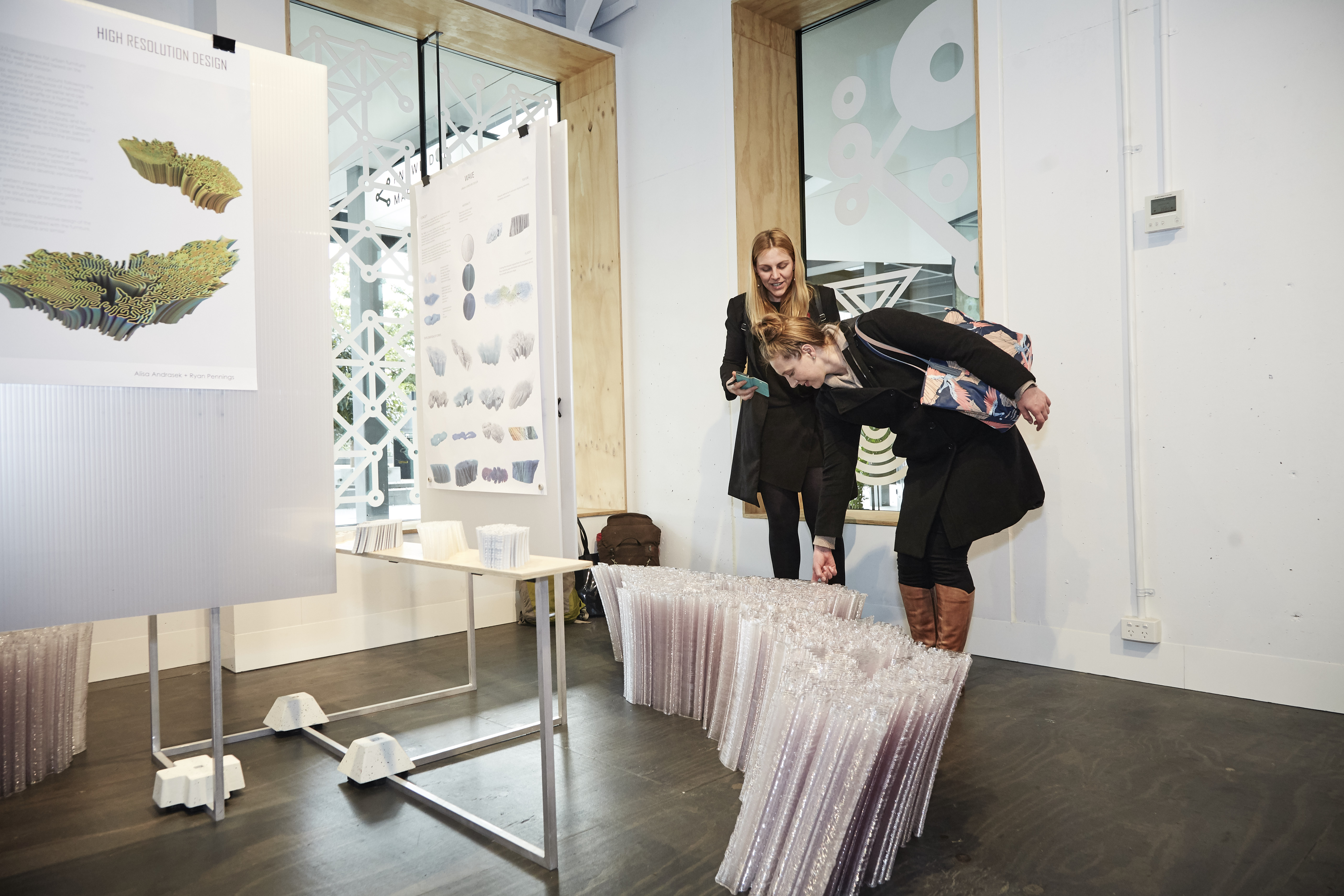
Knowledge Market is a creative hub for sharing ideas. Since its inception in 2016, it has hosted inspirational mentors and facilitators and fostered many new creative projects and partnerships. The Exchange at Knowledge Market is the next phase in the evolution of this innovation space.
The Exchange explores the concept of community and new ways of understanding the shared urban environment through a curated series of public workshops, exhibitions, forums and community events. This year-long living lab is a space created by the community for the community.
Visit the Knowledge Market website.
If you would like to get involved with this project, fill out the form below or reach out to project leaders via the contact info provided alongside each bio.
People
Ross Mcleod
Program Manager, Design Innovation and Technology
School: Architecture and Urban Design
+61 3 9925 3493
RMIT staff profile
ross.mcleod@rmit.edu.au
Ross McLeod is Program Manager of Design Innovation and Technology at RMIT University, Melbourne. Over the past twenty years Ross has worked as both a designer and as an academic, completing a wide range of one-off and production furniture designs, interior architecture projects, exhibitions designs and sculptural works both locally and internationally.
As a designer, educator and academic he is committed to the development and realisation of design projects, teaching practices and research activities that extend the boundaries of contemporary design and the sensibilities that surround it. His experience in the fields of product design, furniture design, interior design and architecture have been instrumental in the establishment of a creative practice that spans the design disciplines.
The Future of Museum Audiences II
Museum Engagement, Data and Older Audiences
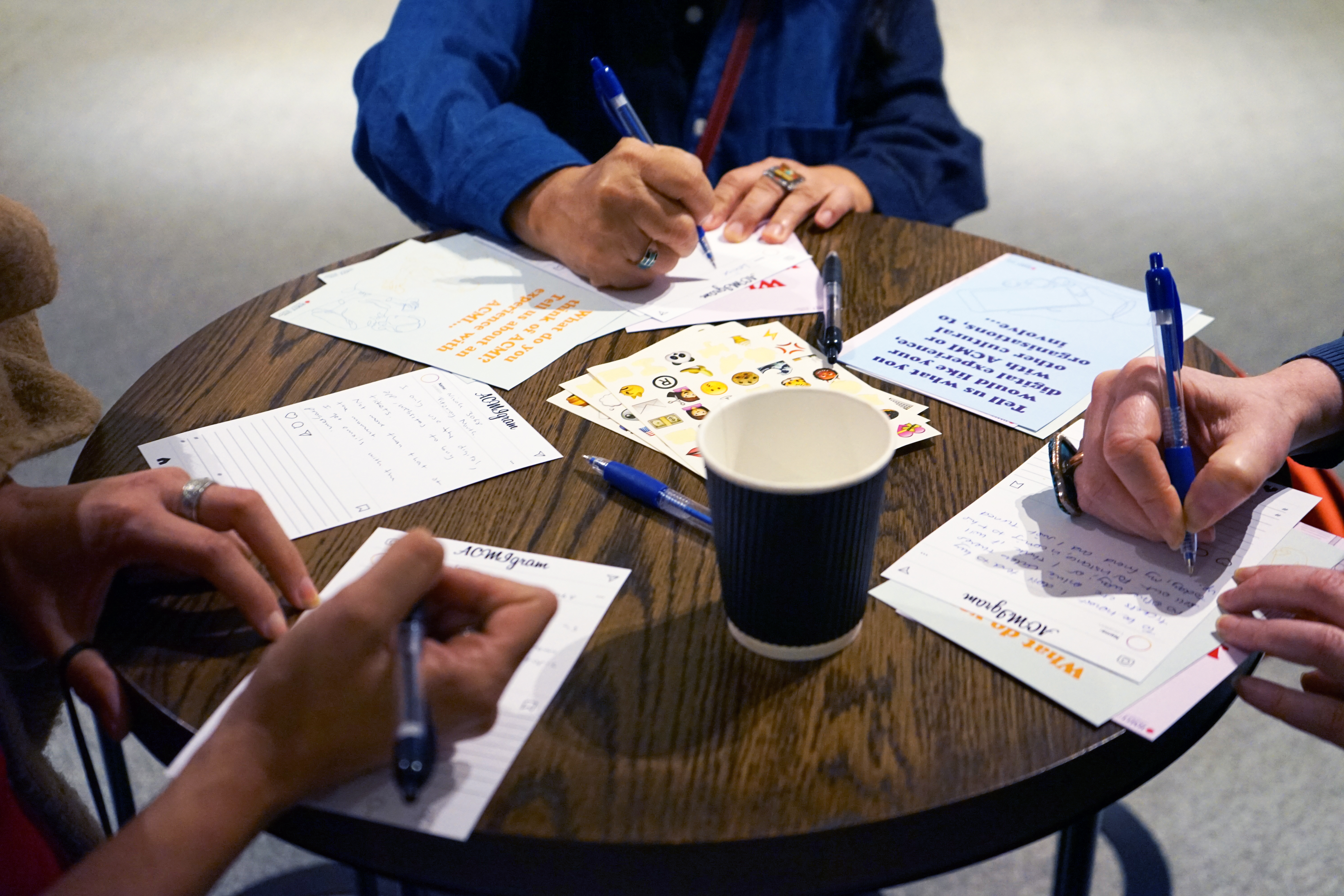
Building on Phase 1, this project specifically sought to identify and develop socially thick understandings of the (digital and non-digital) experiences and potential opportunities for older adults in the museum sector.
Using a series of postcards aimed at discursive elaboration, we invited audiences to share cups of tea and biscuits as they wrote and discussed their responses. We engaged these audiences to ethnographically and creatively reflect upon how they view the museum as an institution, as a place for belonging, and what they would like their digital (and non-digital) experiences with the museum to involve.
If you would like to get involved with this project, fill out the form below or reach out to project leaders via the contact info provided alongside each bio.
People
Larissa Hjorth
Distinguished Professor and Director, Design and Creative Practice
School: Enabling Capability Platforms
Larissa Hjorth is a digital ethnographer, artist, Distinguished Professor and director of the Design & Creative Practice ECP platform at RMIT University. With Professor Heather Horst, she co-founded the Digital Ethnography Research Centre (DERC). Previously, Hjorth was Deputy Dean, Research & Innovation, in the School of Media & Communication (2013−2016). Hjorth served on the inaugural Australian Research Council (ARC) Engagement & Impact Pilot study assessment panel for humanities and creative practice.
Hjorth studies the socio-cultural dimensions of mobile media and play practices in the Asia-Pacific region with an emphasis on interdisciplinary, collaborative and cross-cultural approaches. She has published a dozen co-authored books, edited over a dozen Handbooks/Companions and has over 40 journal articles.
More recently, Hjorth’s work has become concerned with how we can bring creative, social and design solutions to the growing ageing populations and, in turn, how we might consider scenarios of what it means to die well. She is also studying how our “more-than-human” companions can teach us about new media in everyday life. Hjorth’s last book, Haunting Hands (Oxford Uni Press) looked at how mobile media is being deployed in situations of grief and trauma, her previous book explored how art practice can teach us new acumen into the climate change debate.
Hjorth’s books include Haunting Hands (with Cumiskey 2017), Screen Ecologies (with Pink, Sharp & Williams 2016), Digital Ethnography (Pink et al. 2016) Mobile Media in the Asia-Pacific (2009), Games & Gaming (2010), Online@AsiaPacific (with Arnold 2013), Understanding Social Media (with Hinton 2013), and Gaming in Locative, Social and Mobile Media (with Richardson 2014).
Hugh Davies
Postdoctoral Research Fellow
School: Games
Hugh Davies is an artist, curator and researcher of games and play. His practice explores histories of media devices and cultures of games in the Asia Pacific Region. Awarded a PhD in Art, Design and Architecture from Monash University in 2014, Hugh’s studies in game cultures have been supported with fellowships from Tokyo Art and Space, M+ Museum of Visual Culture and the Hong Kong Design Trust. Hugh is currently a postdoctoral research fellow at RMIT in Melbourne, Australia.
Jacina Leong
PhD candidate
School: Media and Communication
Jacina Leong is an artist-curator and PhD candidate in the School of Media and Communications, RMIT. Her research explores critical-creative and careful curatorial approaches to social innovation practices by museums and galleries.
Over the past decade, she has worked in hybrid new media spaces, universities, national and international festivals, regional museums and galleries, libraries and schools — to vision and deliver a diverse range of trans-disciplinary engagement programs, via highly collaborative, experimental and site-responsive processes. Most recently, Jacina was curator for Robotronica, project lead and founding member of the Guerrilla Knowledge Unit, guest facilitator of the Future Innovators Summit (Ars Electronica Tokyo Initiative), and co-curator of the provocation, Curating In The Age of Automation (RMIT & Ritsumeikan University, Kyoto).
From 2012 to 2017, Jacina worked at The Cube (QUT), establishing the inaugural STEAM engagement program for school and university students, educators and pre-service teachers. This program involved key collaborations with local, national and international organisations including Ars Electronica, LEGO Education, and Brisbane City Council. She has also worked in public program development at the Ipswich Art Gallery, collaborative learning strategy in universities, gallery management at Jan Murphy Gallery, and was advisor to the inaugural Make Nice at VIVID Festival.
Gretchen Coombs
Post Doctoral Research Fellow
School: Design and Creative Practice
Gretchen Coombs is a Post Doctoral Research Fellow in the Design & Creative Practice Enabling Capability Platform at RMIT. She researches socially engaged art practices in the US, the UK and Australia, with a particular focus on how they are practiced in urban contexts. She’s a core member of the Cultural Value and Impact Network (CVIN) and contributes to Creative Care in the School of Art. Gretchen has a PhD in social and cultural anthropology and a MA in visual criticism: her writing uses a combination of ethnographic methods and visual analysis. She is a co-author of Creative Practice Ethnographies (Rowan & Littlefield 2019) and her monograph, The Lure of the Social: Encounters with Contemporary Artists (Intellect 2021 ) is an experimental ethnography about contemporary artists working at the intersection of art, aesthetics, and politics.
Care, Media and Ritual
Creative, social and ethnographic interventions in care
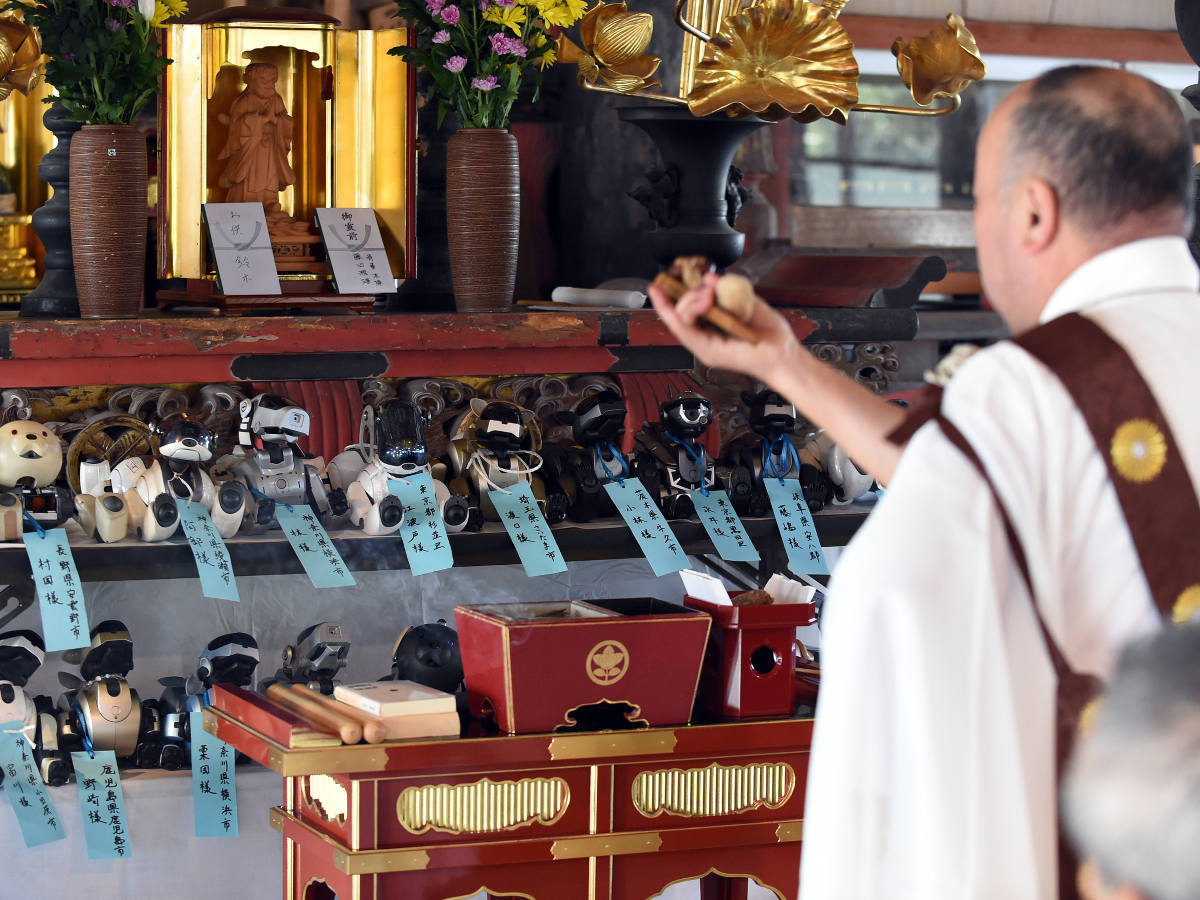
New media is increasingly mediating the role of care and ritual around ageing (and dying). For example, in Japan where a large percentage of the population is elderly, the role of care and ritual is being recalibrated. New media and digital mobile technologies are affording families new ways to care-at-a-distance. What does care, media and ritual look like when replicated by new technologies?
We’re exploring some of the practices and challenges in thinking through the entanglement of care, media and ritual. Drawing from experts in anthropology, environmental science, digital media, social work and design we explore various scenarios of use (past, present and future) so that we might provide creative, design, social and ethnographic interventions to this real-world problem.
If you would like to get involved with this project, fill out the form below or reach out to project leaders via the contact info provided alongside each bio.
People
Larissa Hjorth
Distinguished Professor and Director, Design and Creative Practice
School: Enabling Capability Platforms
Larissa Hjorth is a digital ethnographer, artist, Distinguished Professor and director of the Design & Creative Practice ECP platform at RMIT University. With Professor Heather Horst, she co-founded the Digital Ethnography Research Centre (DERC). Previously, Hjorth was Deputy Dean, Research & Innovation, in the School of Media & Communication (2013−2016). Hjorth served on the inaugural Australian Research Council (ARC) Engagement & Impact Pilot study assessment panel for humanities and creative practice.
Hjorth studies the socio-cultural dimensions of mobile media and play practices in the Asia-Pacific region with an emphasis on interdisciplinary, collaborative and cross-cultural approaches. She has published a dozen co-authored books, edited over a dozen Handbooks/Companions and has over 40 journal articles.
More recently, Hjorth’s work has become concerned with how we can bring creative, social and design solutions to the growing ageing populations and, in turn, how we might consider scenarios of what it means to die well. She is also studying how our “more-than-human” companions can teach us about new media in everyday life. Hjorth’s last book, Haunting Hands (Oxford Uni Press) looked at how mobile media is being deployed in situations of grief and trauma, her previous book explored how art practice can teach us new acumen into the climate change debate.
Hjorth’s books include Haunting Hands (with Cumiskey 2017), Screen Ecologies (with Pink, Sharp & Williams 2016), Digital Ethnography (Pink et al. 2016) Mobile Media in the Asia-Pacific (2009), Games & Gaming (2010), Online@AsiaPacific (with Arnold 2013), Understanding Social Media (with Hinton 2013), and Gaming in Locative, Social and Mobile Media (with Richardson 2014).
Locating the Mobile
Care-at-a-Distance Through Smartphone Practice
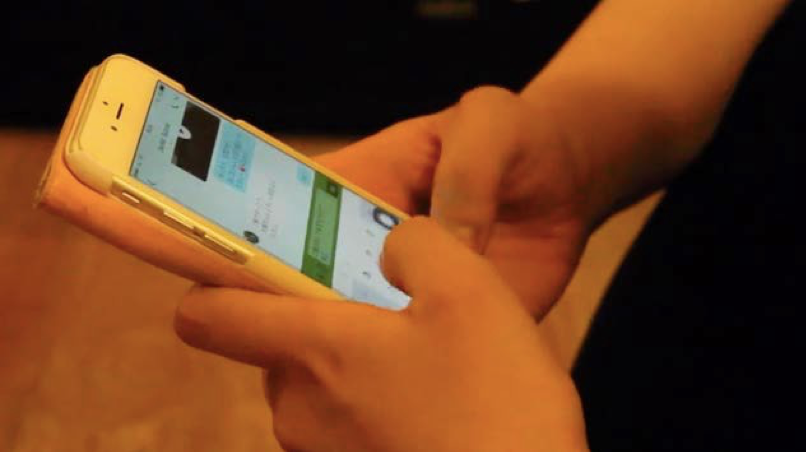
This Australian Research Council Linkage with Intel, Locating the Mobile, followed ethnographically 12 households over three years (2014 – 17) within the three purposefully very distinct locations (Melbourne, Tokyo and Shanghai) to gain a sense of cultural differences and similarities with respect to intergenerational use of locative media.
To understand how locative media fit into the rhythms of everyday life — with its mundane routines and intimacies — the researchers went beyond standard interviewing methods. Instead, they developed ethnographic techniques that enabled them to engage empathetically with people’s intimate experiences in mundane life.
View the report here.
If you would like to get involved with this project, fill out the form below or reach out to project leaders via the contact info provided alongside each bio.
People
Larissa Hjorth
Distinguished Professor and Director, Design and Creative Practice
School: Enabling Capability Platforms
Larissa Hjorth is a digital ethnographer, artist, Distinguished Professor and director of the Design & Creative Practice ECP platform at RMIT University. With Professor Heather Horst, she co-founded the Digital Ethnography Research Centre (DERC). Previously, Hjorth was Deputy Dean, Research & Innovation, in the School of Media & Communication (2013−2016). Hjorth served on the inaugural Australian Research Council (ARC) Engagement & Impact Pilot study assessment panel for humanities and creative practice.
Hjorth studies the socio-cultural dimensions of mobile media and play practices in the Asia-Pacific region with an emphasis on interdisciplinary, collaborative and cross-cultural approaches. She has published a dozen co-authored books, edited over a dozen Handbooks/Companions and has over 40 journal articles.
More recently, Hjorth’s work has become concerned with how we can bring creative, social and design solutions to the growing ageing populations and, in turn, how we might consider scenarios of what it means to die well. She is also studying how our “more-than-human” companions can teach us about new media in everyday life. Hjorth’s last book, Haunting Hands (Oxford Uni Press) looked at how mobile media is being deployed in situations of grief and trauma, her previous book explored how art practice can teach us new acumen into the climate change debate.
Hjorth’s books include Haunting Hands (with Cumiskey 2017), Screen Ecologies (with Pink, Sharp & Williams 2016), Digital Ethnography (Pink et al. 2016) Mobile Media in the Asia-Pacific (2009), Games & Gaming (2010), Online@AsiaPacific (with Arnold 2013), Understanding Social Media (with Hinton 2013), and Gaming in Locative, Social and Mobile Media (with Richardson 2014).
Audience Lab
Exploring the future of audiences and engagement in an age of big data and social media
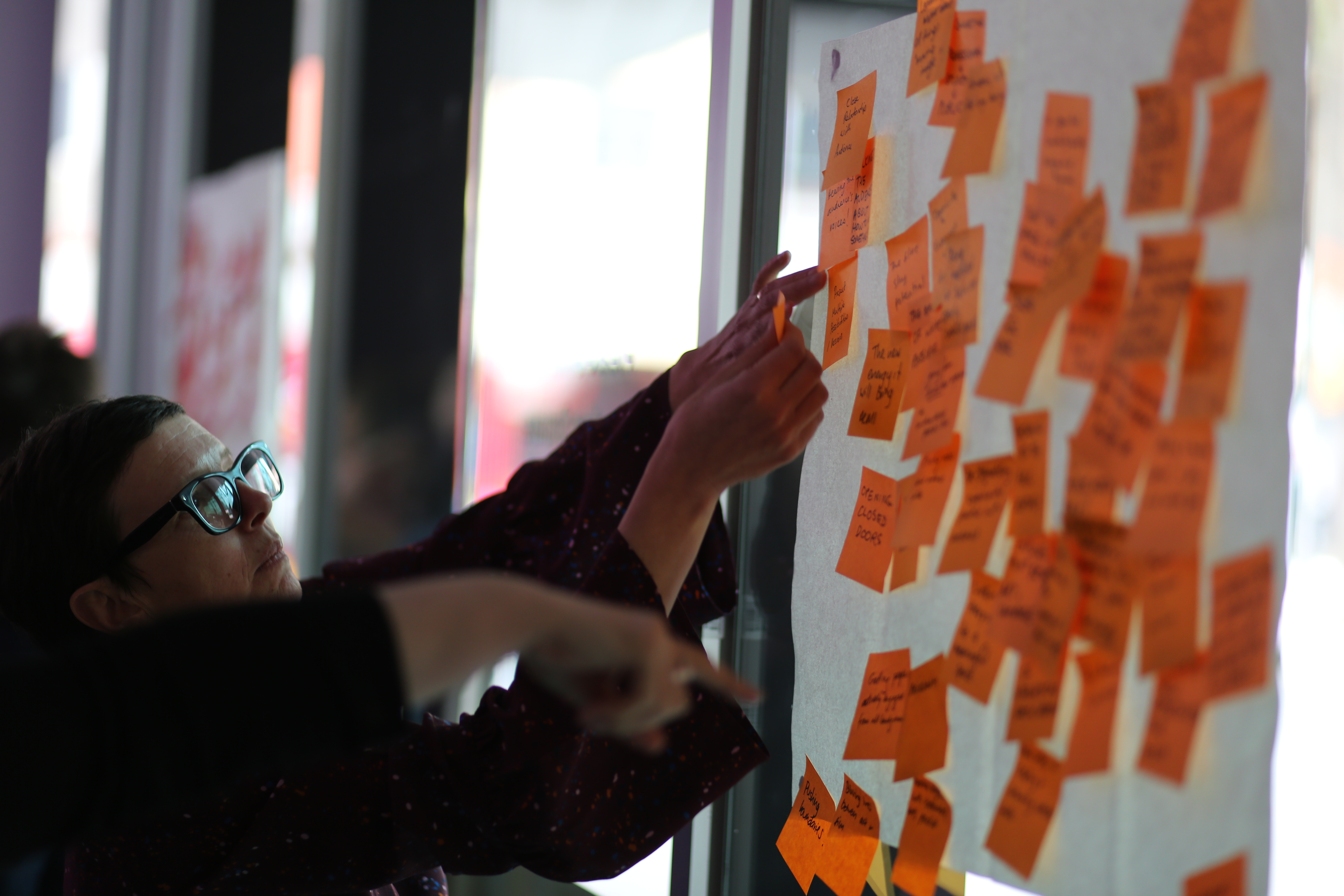
Cultural organisations — galleries, museums, archives and libraries — are designing new ways to engage with the public. Audience Lab brings together these institutional players with industry and academia to discuss the collaborative possibilities of a publicly-facing product testing ground for new ideas. Our focus lies in developing a Lab where industry can user-test ideas, publics can be introduced to the technologies employed in contemporary media creation and academics can interlace between both, to explore the larger questions facing the future of design and media.
If you would like to get involved with this project, fill out the form below or reach out to project leaders via the contact info provided alongside each bio.
People
Martyn Hook
Dean
School: Architecture and Urban Design
Dr Martyn Hook is Deputy Pro Vice-Chancellor Partnerships in the College of Design and Social Context at RMIT University in Melbourne, Australia. He also holds the position of Dean at RMIT’s School of Architecture & Design alongside his role as Professor of Architecture. In addition to his work at RMIT Martyn is a director of multi award winning iredale pedersen hook architects, a studio practice based in Melbourne and Perth dedicated to appropriate design of effective sustainable buildings with a responsible environmental and social agenda.
Hook has particular expertise in the implementation of strategic vision in creative practice and driving organisational change through the lens of an integrated scholarship model that links teaching and research. Prior to this appointment he was Acting Dean of the School of Architecture & Design and Acting Head of the School of Art.
News and updates
VC FELLOW HIGHLIGHT: NATALIE HENDRY
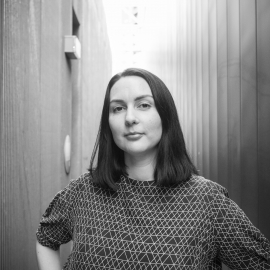
Natalie Hendry
Vice-Chancellor’s Fellow in the School of Media and Communications Read more
Being Wiradjuri Together – Winner 2018 Good Design Award, Social Impact

An interactive Wiradjuri-RMIT project is among the winners in the social impact category at the 2018 Good Design Awards. Read more
HDR HIGHLIGHT: Caitlin McGrane
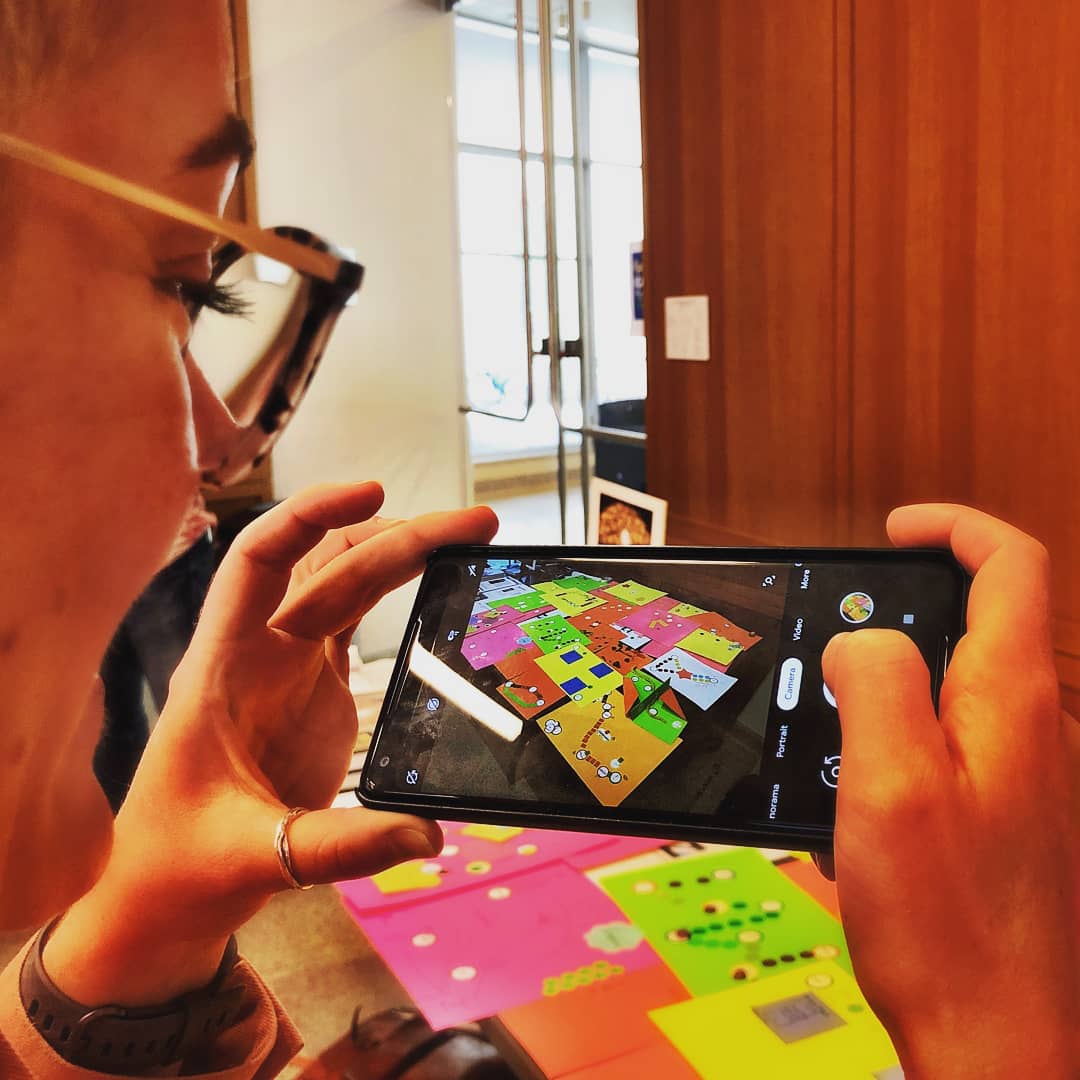
Caitlin McGrane
PhD candidate in the Digital Ethnography Research Centre Read more
Doing Digital Methods – Workshop Summary
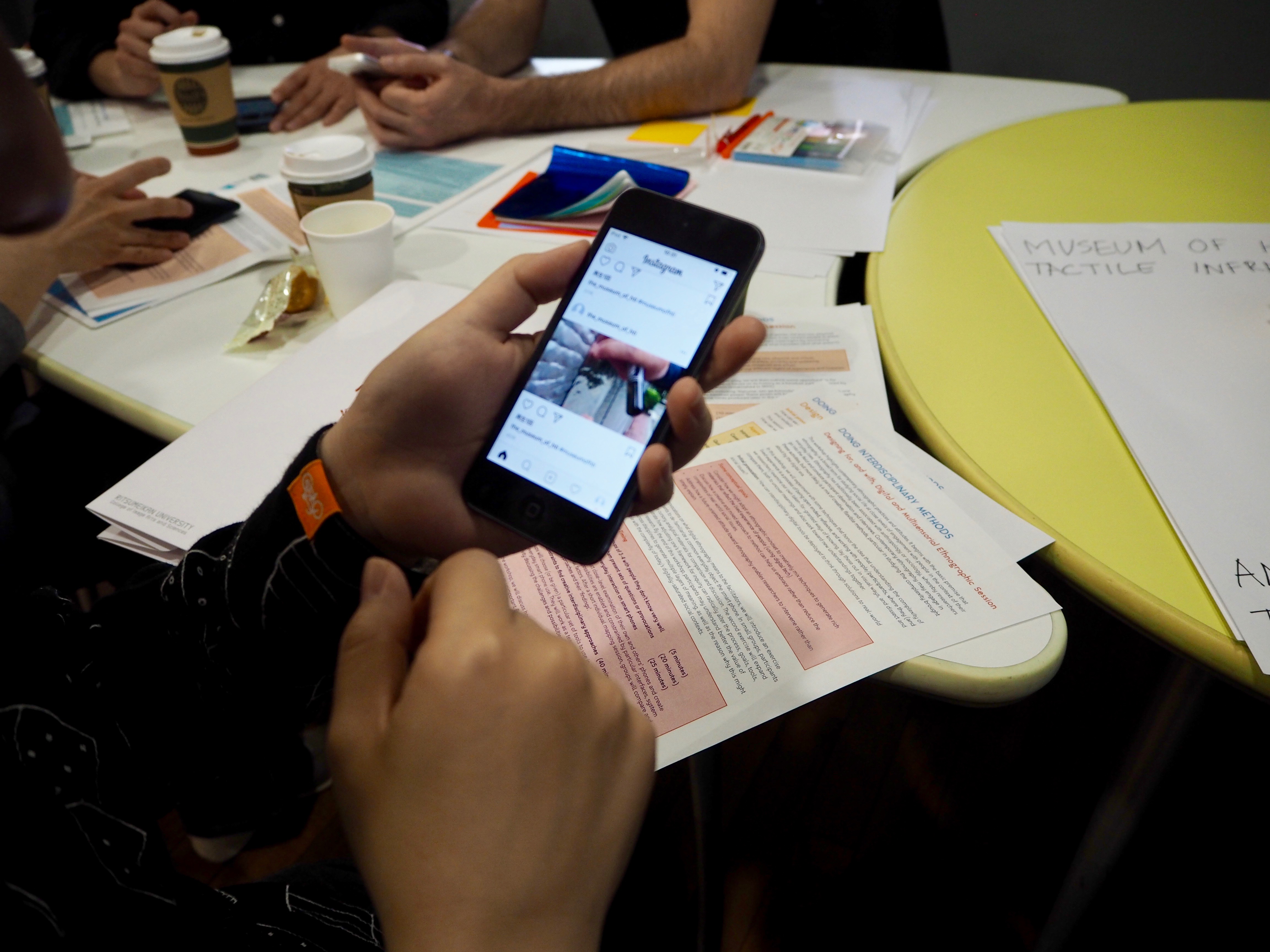
In June 2018, the DCP ECP and Ritsumeikan University (RU) jointly hosted a workshop at Ritsumeikan University (Japan) on interdisciplinary and critical creative methods, within mixed reality contexts, when considering social innovative futures. Read more
VC FELLOW HIGHLIGHT: DAVID CHESWORTH
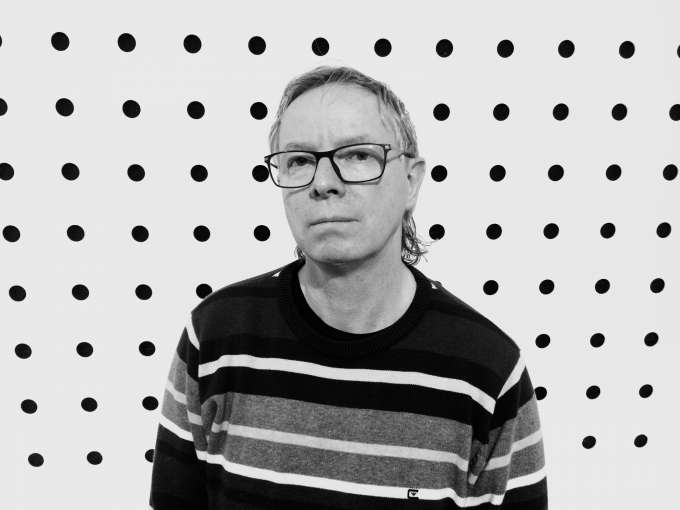
David Chesworth
Vice Chancellor’s Research Fellow in the School of Art Read more
People
Dr Jenny Robinson is a lecturer in Media and Communication, teaching classes in audience research and strategic communication. Her research is in media psychology, most recently using biometrics and experimental methodology to investigate audience reception of multi-platform advertising models. She is interested in understanding how people respond to mediated communication whether that is TV, online content, public interaction or art.
Robinson brings an interdisciplinary approach to the study of audience experience, with a BA (hons) in psychology and PhD in mass communication, MA in TV and film, and Grad Dip in science communication.
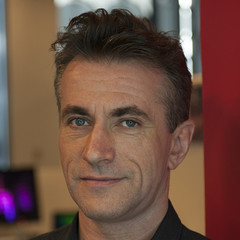
Dr Jonathan Duckworth is a digital media artist, designer and founding director of the CiART Lab (Creative interventions, Art and Rehabilitative Technology) RMIT University. Duckworth’s research spans media art, digital design, game technology and human computer interaction. He was awarded a RMIT Vice Chancellor’s Research Fellowship between 2012 – 2015.
Duckworth brings to RMIT a broad range of industry and research experience in digital media design from his practice called ZedBuffer. His practice specialises in research, development and production of novel interactive installations for government clients, museums, galleries and public venues using computer game technology. The practice also serves as a repository for his funded research activities, speculative designs and experimental interactive media art works.

Dr Tania Lewis is the Director of the Digital Ethnography Research Centre and is a Professor in the School of Media and Communication at RMIT University. An ex-medical practitioner, her research critically engages with the politics of lifestyle, sustainability and consumption, and with global media and digital cultures.
Lewis has published over 50 journal articles and chapters and is the author of Smart Living: Lifestyle Media and Popular Expertise, and co-author of Telemodernities: Television and Transforming Lives in Asia, and Digital Ethnography: Principles and Practices. She is also the editor and co-editor of four collections with Routledge including Ethical Consumption: A Critical Introduction and Green Asia: Ecocultures, Sustainable Lifestyles and Ethical Consumption. She is currently writing a book for Bloomsbury Press entitled Digital Food: From Paddock to Platform.
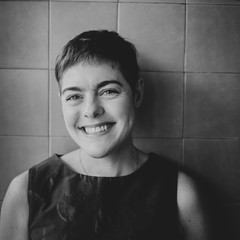
Caitlin McGrane is a feminist researcher and activist. Her doctoral research investigates how women’s feelings about their smartphone uses and practices can help challenge normative and misogynistic notions of women’s communications. She leads Gender Equity Victoria’s (GEN VIC) ‘Enhancing Online Safety for Women’ project advocating for better support and conditions for women working in media. In 2018 – 2019 she worked with GEN VIC to design a toolkit and a series of videos encouraging prosocial bystander actions on social media. She has worked on projects with the Victorian Trades Hall Council Women’s Team building an online resource to supplement their Gender-Based Violence in the Workplace training package. Her previous research has explored how witnessing anti-feminist harassment can negatively affect individuals’ willingness to publicly identify as feminist and participate in online spaces.
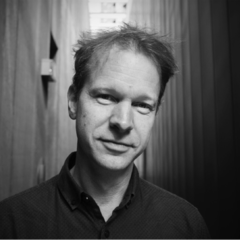
Dr Darrin Verhagen is a senior lecturer in Media and Communication, and runs the Audiokinetic Experiments [AkE] Lab.
Verhagen teaches into the Sound Design specialisation in the Digital Media Program. His work in the AkE Lab uses sound, motion simulators, 4D cinema seating, light and VR to create and audit works that explore the relationship between hearing, vision, movement and vibration. With a background as a soundtrack composer and sound designer for theatre, dance, film and installation, his research interests interrogate the psychophysiology of aesthetic experience, and explore practical applications of such knowledge beyond art.
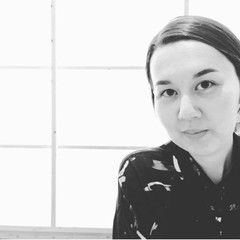
Jacina Leong is an artist-curator and PhD candidate in the School of Media and Communications, RMIT. Her research explores critical-creative and careful curatorial approaches to social innovation practices by museums and galleries.
Over the past decade, she has worked in hybrid new media spaces, universities, national and international festivals, regional museums and galleries, libraries and schools — to vision and deliver a diverse range of trans-disciplinary engagement programs, via highly collaborative, experimental and site-responsive processes. Most recently, Jacina was curator for Robotronica, project lead and founding member of the Guerrilla Knowledge Unit, guest facilitator of the Future Innovators Summit (Ars Electronica Tokyo Initiative), and co-curator of the provocation, Curating In The Age of Automation (RMIT & Ritsumeikan University, Kyoto).
From 2012 to 2017, Jacina worked at The Cube (QUT), establishing the inaugural STEAM engagement program for school and university students, educators and pre-service teachers. This program involved key collaborations with local, national and international organisations including Ars Electronica, LEGO Education, and Brisbane City Council. She has also worked in public program development at the Ipswich Art Gallery, collaborative learning strategy in universities, gallery management at Jan Murphy Gallery, and was advisor to the inaugural Make Nice at VIVID Festival.
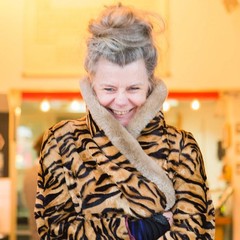
Francesca Rendle-Short is Associate Dean Writing and Publishing in the School of Media and Communication at RMIT University in Melbourne, Australia. She is co-founder of the non/fictionLab research group and co-director of WrICE (Writers Immersion and Cultural Exchange). She has a Doctor of Creative Arts from the University of Wollongong, was a recipient of an International Nonfiction Writers Fellowship to the University of Iowa, and was showcased in the Outstanding Field at Victoria College of the Arts, University of Melbourne.
Francesca Rendle-Short is an award winning novelist, memoirist and essayist. Her books include Bite Your Tongue, Imago, and The Near and The Far; also the forthcoming 100 Love Letters, and No Notes (This is writing). Her artwork is in the collection of the State Library of Queensland.

Daniel Palmer is Associate Dean of Research and Innovation in the School of Art at RMIT University.
Daniel Palmer’s research and professional practice focuses on contemporary art and cultural theory, with a particular emphasis on photography and digital media. Prior to joining RMIT in 2018, Palmer was Associate Dean of Graduate Research and Associate Professor in the Art History & Theory Program at Monash Art, Design & Architecture. He also has a long association with the Centre for Contemporary Photography in Melbourne, first as a curator and later on the board of management.
Palmer’s book publications include Photography and Collaboration: From Conceptual Art to Crowdsourcing (Bloomsbury 2017); Digital Light (Open Humanities Press, 2015), edited with Sean Cubitt and Nathaniel Tkacz; The Culture of Photography in Public Space (Intellect 2015), edited with Anne Marsh and Melissa Miles; Twelve Australian Photo Artists (Piper Press, 2009), co-authored with Blair French; and Photogenic (Centre for Contemporary Photography, 2005). His scholarly writings on photography and contemporary art have appeared in journals such as Photographies, Philosophy of Photography, Angelaki, Reading Room and the Australian and New Zealand Journal of Art. Palmer has also published over sixty catalogue essays and fifty art reviews since 1997, in art magazines including Art and Australia, Photofile and Frieze.
Palmer has been the recipient of various awards and grants, and has been Chief Investigator on multiple ARC projects, including the ARC Discovery Project ‘Genealogies of Digital Light’ (2008 – 11) with Sean Cubitt and Les Walkling; an ARC Linkage Project ‘Photography as a Crime’ (2009 – 2012) with Anne Marsh, Melissa Miles, Mark Davison and the Centre for Contemporary Photography; and the ARC Discovery Project ‘Curating Photography in the Age of Photosharing’; (2015 – 2017) with Martyn Jolly. Palmer is currently a researcher on the ARC Discovery Project ‘Digital Photography: Mediation, Memory and Visual Communication’ (2020 – 2022) with Scott McQuire, Nikos Papastergiadis, Sean Cubitt and Celia Lury.

Dr Emma Witkowski is the Director for Playable Media and a Lecturer in the School of Media and Communication. As the Program Manager for the Bachelor of Games Design degree, Witkowski teaches theoretical units on Game Cultures and Game Studies.
Witkowski received her PhD in Game Studies in 2012 from the IT University of Copenhagen, Denmark, taking a qualitative exploration of networked high performance play, considered through a lens of sociology and phenomenology, sports and game studies. She has been working in the field of computer game cultures since 2005, the same year she co-founded the Danish state and privately funded initiative Letzplay, a project aimed at increasing young women’s access to ICT’s and computer gaming knowledge.
Her current research looks at various aspects of computer game cultures, including high performance networked teamplay, esports, gender and games and serious leisure practices. She has written and presented on topics such as identity and play, livestreaming and spectatorship, Mega-LANs, running aesthetics, and the phenomenology of high-performance networked teams.
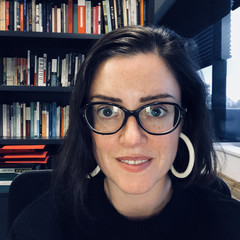
Jenny Kennedy is a Postdoctoral Research Fellow in Media and Communication at RMIT University, Melbourne. Her research interests cover media practices in everyday life, social discourses around technology use and material culture, especially in domestic contexts. She is a core member of the Technology, Communication and Policy Lab in DERC.
She is currently working on projects around digital inclusion, and AI and automation in home environments.
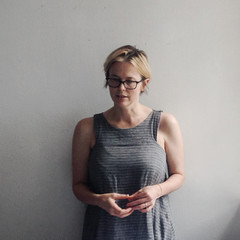
Lucinda Strahan is a writer and researcher of expanded nonfiction. Lucinda’s own expanded writing practice spans journalism and arts criticism, auto-ethnographic and personal essaying, editing and publishing, and exploratory literary-visual methods. She is the currently Writer in Residence at Linden New Art, St Kilda and in 2017 was Writer in Residence Residence at Grey Projects, Singapore as part of her ongoing interest in interdisciplinary critical/creative writing practices. Lucinda is a Lecturer in the Professional Communication program in the School of Media and Communication.
Mark Andrejevic (Professor, School of Media, Film, and Journalism, Monash University) contributes expertise in the social and cultural implications of data mining, and online monitoring. He writes about monitoring and data mining from a socio-cultural perspective, and is the author of three monographs and more than 60 academic articles and book chapters. He was the Chief Investigator for an ARC QEII Fellowship investigating public attitudes toward the collection of personal information online ($390,000; 2010 – 2014).
Andrejevic has experience conducting both quantitative and qualitative research and is experienced in the focus group and interview methodologies. His work on the personal information project, for example, generated a book, 11 articles and book chapters, and a report on Australian attitudes toward online privacy that was launched by the Federal Privacy Commissioner.
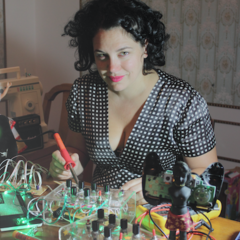
Nancy Mauro-Flude is an artist and theorist. Administer of a home-brewed feminist web server, she leads the Holistic Computing Network Research group and practices experiential pedagogy, in her role as coordinator Emerging Digital/Media Cultures, Bachelor of Design (Digital Media), College of Design and Social Context at RMIT University. Mauro-Flude’s research contributes to the interdisciplinary space of feminist science and technology studies, computer subculture and performance art. Her artworks radically intervenes into public space by the aesthetic application of networking infrastructure, playfully and critically she experiments with signal transmission in order to draw upon contested knowledges and advance broader understandings emergent technologies as they arise as key actors in our embodied life.
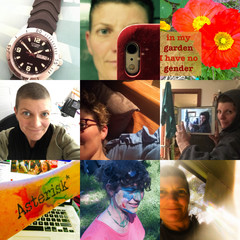
Son Vivienne is a Post-Doctoral Researcher at Creative Agency and the Digital Ethnography Research Centre at RMIT. Their principal expertise is digital self-representation, online activism, queer identity, and rhetorical strategies/feminist practices for speaking and listening across difference. Son is also involved in community development and arts as an activist, workshop facilitator and media-maker. Son is author of Digital Identity and Everyday Activism: Sharing Private Stories with Networked Publics (Palgrave Macmillan) and co-author/co-editor of Negotiating Digital Citizenship: Control, Contest, Culture (Rowman & Littlefield).
Son curates several collective storytelling websites for queer and gender-diverse communities and has over twenty years of multi-media production and distribution experience. As an award winning writer/director/producer of drama and documentaries, they tackled subjects as diverse as youth suicide; drug cultures in Vietnamese communities; and lesbian personal columns. Their film work includes multi-lingual (Vietnamese-English and Adnyamathanha-English) and multi-modal (animation, micro-docs, digital storytelling and interactive web-platforms) projects that reflect their comparative, cross-cultural and critical approaches to communication and storytelling.
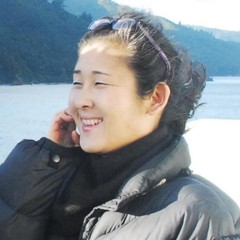
Yoko Akama is a design researcher at RMIT University, Australia. She co-leads the Design and Social Innovation in Asia-Pacific network and Design+Ethnography+Futures research program at RMIT.
Her Japanese heritage has embedded a Zen-informed relational practice to carve a ‘tao’ (path) in design and has published extensively on this topic. This practice is shaped by working with regional communities in Australia in strengthening their resilience for disaster preparedness, and with Indigenous Nations enact their sovereignty and self-determination. She is an Adjunct Fellow of a ecosystem innovation studio, Re:public Japan, and Visiting Fellow at the Centre of Excellence in Media Practice, Bournemouth University. She serves on several editorial boards of international journals, and conference review committees. She is a recipient of several major research grants in Australia and the UK and winner of the prestigious Good Design Australia Awards in 2014.
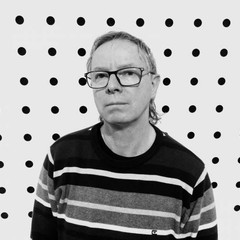
David Chesworth is a Vice-Chancellor’s Fellow at RMIT, based in the School of Art and DCP Research Platform. He is a cross-disciplinary artist, composer and researcher with an experimental background, He has created investigative artworks in visual art, music, screen-based media, performance and installation, and across the wider cultural sector, including major museums and artist run initiatives and the public domain. Recent artworks created with collaborator Sonia Leber were exhibited in the main programs of the Venice and Sydney Biennale’s and the satellite program of Moscow Biennale. His sound works have been presented internationally, including Brooklyn Academy of Music’s Next Wave Festival and The Bang on a Can Marathon in New York, and Ars Electronica in Austria (Prix Ars Electronica Honorary Mention).
His recent award-winning PhD investigation into ontologies of listening within visual arts practice interrogated artworks at Dia:Beacon in upstate New York. This led to a practice-based research project as an Associate Investigator with the ARC Centre of Excellence for Australian Biodiversity and Heritage (CABAH) where he investigated, with Earth scientists and Indigenous traditional owners, different understandings of the world.
His postdoctoral research will involve the creation of three artworks that investigate sound archives: a collection of early Indigenous recordings, an experimental music archive, and a collection of recently unearthed séance tapes, this will be supplemented with a range of written research outputs. David is also co-creating a large-scale research artwork called What Listening Knows for exhibition in the UK later in the year.

Dr Julienne van Loon is a Vice Chancellor’s Senior Research Fellow with non/fictionLab, and a leading Australian novelist and essayist. Her first novel, Road Story, won The Australian/Vogel’s award in 2005 and was shortlisted for the WA Premier’s Award for Fiction and the Commonwealth Writers’ Prize Best First Book Award (Asia and Pacific). She has held residencies at various international arts organisations and universities, including the University of Iowa, where she was sponsored by the Paul and Hauling Engle Fund to take part in the International Writing Program in 2017. van Loon co-edits the leading scholarly Creative Writing journal TEXT, and is a peer-assessor for the Australia Council for the Arts. Her forthcoming essay collection, The Thinking Woman, includes interviews with key women thinkers from the Australia, Europe and the United States. Her scholarly research interests include the role of play in research and creative practice.
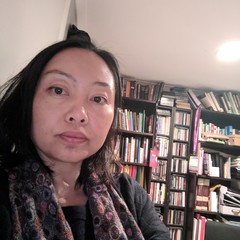
Dr Olivia Guntarik is interested in the relationship between people, places and technologies. She has co-designed and curated place-based cultural walking trails with Indigenous community groups, using mobile apps as self-guided digital tour guides, and as a way to commemorate sites of historical significance. She has led numerous industry-based research projects that bring together writers, artists, designers and digital experts with geographers, sociologists, ethnographers and educators. She was awarded two distinguished Creative Victoria funding initiatives, co-supported through the Department of Education and Training under the Virtual Creative Professionals in Schools program, to provide schools in rural and regional locations with the highest quality creative and digital learning experiences. Research outcomes included the development of interactive mobile apps and site-specific public installations, providing new ways to document and understand user engagement, participation and impact.
Evelyn Tsitas is RMIT Gallery’s Senior Communications and Outreach Advisor. An award winning published author and former journalist, Evelyn has a PhD in Creative Media and curated the 2018 exhibition My Monster: The human-animal hybrid, based on her doctoral research at RMIT.
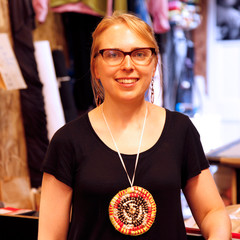
Grace is a published art historian, curator and artist with expertise in contemporary art and design, public art, social practice, social enterprise and community development.
Grace’s research challenges and transforms conventional understandings of the relationship between margin and centre in relation to the cultural economy, contemporary art practice and art history. She has pioneered work on the field of art-based social enterprise in Australia, and has worked extensively in migrant and refugee settlement. She has a multidisciplinary approach that engages with a range of fields including art, design, architecture, sustainability, sociology, business and international development. In addition, through her leadership of the CAST research group, she collaborates with industry and across disciplines to develop research projects that address issues of access, equity and justice.
Grace is a Chief Investigator on the ARC Discovery Project ‘The underworld: outsider artists and the reformulation of Australian art,’ (2018−2020) and the ARC Discovery Project ‘Art-based Social Enterprises and Marginalised Young Peoples Transitions,’ (2017−2019). She has published numerous articles in refereed and unrefereed publications, published creative works in literary journals, authored exhibition catalogues and worked as an editor on local newspapers and engaged widely with local and national media. Grace is the founding CEO & a current Board Director of The Social Studio, a fashion and art based social enterprise working with young people from humanitarian migrant backgrounds in Melbourne.

Hugh Davies is an artist, curator and researcher of games and play. His practice explores histories of media devices and cultures of games in the Asia Pacific Region. Awarded a PhD in Art, Design and Architecture from Monash University in 2014, Hugh’s studies in game cultures have been supported with fellowships from Tokyo Art and Space, M+ Museum of Visual Culture and the Hong Kong Design Trust. Hugh is currently a postdoctoral research fellow at RMIT in Melbourne, Australia.
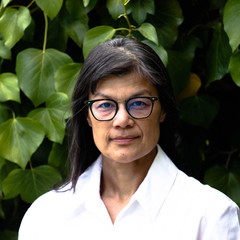
Michelle Aung Thin is a writer, former advertising copywriter and scholar. She is a Lecturer at RMIT University and teaches across the disciplines of Creative Writing and Advertising. Her most recent novel, Hasina (Allen & Unwin 2019) is about Rohingya ethnic cleansing and is published as Crossing the River Farak (Annick 2020) in Canada and the USA. Her first novel, The Monsoon Bride, (Text 2011) is set in colonial Burma and was shortlisted for the Victorian Premier’s Literary awards as an unpublished manuscript. Her writing has been included on VCE reading lists and republished on the SBS website. In 2017, she was a National Library of Australia Creative Arts Fellow (supported by the Eva Kollsman and Ray Mathew Trust) and in 2014, the first Asialink writer in residence to Myanmar (funded by Arts Victoria).
Michelle was a co-director of the non/fictionLab in 2018 and 2019, is currently a co-director of WrICE, Writers Immersion and Cultural Exchange and has served on the board of The Lifted Brow. Her research interests range from the cultural history of southeast Asian hybrid identities to contemporary creative practices in Myanmar and the ethics of writing about difference. Current research includes a project addressing diversity in publishing and a pilot study that aims to reduce sexist advertising by educating the next generation of advertising creatives about harmful stereotypes.
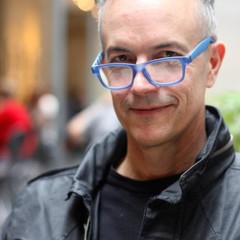
David Carlin is a writer, creative artist and scholar. His books include The Abyssinian Contortionist, Our Father Who Wasn’t There, and (forthcoming) The After-Normal for Rose Metal Press, and 100 Atmospheres: Studies in Scale and Wonder for Open Humanities Press. David’s essays, plays, radio features, exhibitions, documentary and short films have won awards and featured at numerous international festivals. He co-edited a cross-cultural anthology of Asian and Australian writers, The Near and the Far (with Francesca Rendle-Short, Scribe 2016) and Performing Digital (Routledge, 2015), about the Circus Oz Living Archive project he led. Co-President of the NonfictioNOW Conference, the world’s leading conference in literary nonfiction, David is a Professor at RMIT University, Australia, where he co-directs WrICE and non/fictionLab.

Peter West is a Communication Design lecturer and PhD candidate. He has a diverse teaching practice which moves across areas such as communications strategy, art direction and design for social change. He draws upon practical industry experience as both a freelance art director and copy writer within both multinational communications agencies and health related communications strategies within the not for profit sector.
His research focuses on ways in which Non-Indigenous creative practitioners can better understand their subject position in relation to Indigenous sovereignty. West is as a chief investigator on Sovereign Weaving Project: ‘Practicing Sovereign Relations through Weaving a Treaty’. The project seeks to support Indigenous Nations to practice their sovereignty, through the realisation of a woven treaty as the conclusion of their diplomatic responsibilities.

Larissa Hjorth is a digital ethnographer, artist, Distinguished Professor and director of the Design & Creative Practice ECP platform at RMIT University. With Professor Heather Horst, she co-founded the Digital Ethnography Research Centre (DERC). Previously, Hjorth was Deputy Dean, Research & Innovation, in the School of Media & Communication (2013−2016). Hjorth served on the inaugural Australian Research Council (ARC) Engagement & Impact Pilot study assessment panel for humanities and creative practice.
Hjorth studies the socio-cultural dimensions of mobile media and play practices in the Asia-Pacific region with an emphasis on interdisciplinary, collaborative and cross-cultural approaches. She has published a dozen co-authored books, edited over a dozen Handbooks/Companions and has over 40 journal articles.
More recently, Hjorth’s work has become concerned with how we can bring creative, social and design solutions to the growing ageing populations and, in turn, how we might consider scenarios of what it means to die well. She is also studying how our “more-than-human” companions can teach us about new media in everyday life. Hjorth’s last book, Haunting Hands (Oxford Uni Press) looked at how mobile media is being deployed in situations of grief and trauma, her previous book explored how art practice can teach us new acumen into the climate change debate.
Hjorth’s books include Haunting Hands (with Cumiskey 2017), Screen Ecologies (with Pink, Sharp & Williams 2016), Digital Ethnography (Pink et al. 2016) Mobile Media in the Asia-Pacific (2009), Games & Gaming (2010), Online@AsiaPacific (with Arnold 2013), Understanding Social Media (with Hinton 2013), and Gaming in Locative, Social and Mobile Media (with Richardson 2014).

Professor Ingrid Richardson has been teaching, supervising and researching in the fields of digital media, mobile media and games for over twenty years. She has a broad interest in the human-technology relation and has published widely on the phenomenology of games and mobile media, digital ethnography and innovative research methods, the relation between technology use and wellbeing, and the cultural effects of urban screens, wearable technologies, virtual and augmented reality, remix culture and web-based content creation and distribution. Ingrid has led or co-led 14 funded research projects, the most recent being an ARC DP [Games of Being Mobile] with Larissa Hjorth. She is contributing co-editor of Studying Mobile Media (Routledge, 2011) and co-author of Gaming in Social, Locative and Mobile Media (Palgrave, 2014), Ambient Play (MIT, 2020), Understanding Games and Game Cultures (Sage, 2020), Exploring Minecraft: Ethnographies of Play and Creativity (Palgrave, forthcoming), and Mobile Media and the Urban Night (Palgrave, forthcoming). Ingrid brings ten years’ experience in university-level HDR management and during this time has actively championed and supported creative methods and practice-led postgraduate research. Over the past five years she has also developed a passion for teaching critical web literacy skills to undergraduate students across all disciplines.
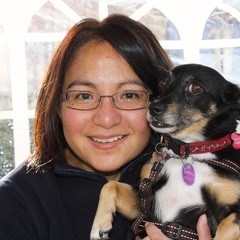
Catherine Gomes is an Associate Professor in RMIT University’s School of Media and Communication. Catherine is an ethnographer whose work contributes to the understanding of the evolving migration, mobility and digital media nexus. As a migration and mobility scholar, Catherine specialises on the social, cultural and communication spaces of transient migrants, especially international students, their wellbeing, their social groups and their digital engagements. Catherine’s work covers the themes of identity, ethnicity, race, memory and gender. She is a specialist on the Asia-Pacific with Australia and Singapore being significant fieldwork sites. Catherine has experience in mixed methods and interdisciplinary research.
Catherine’s work on transient migration and digital technology is advancing work on migration and mobility because of the transient-digital nexus she pioneers. Moreover, as founding editor of Transitions: Journal of Transient Migration Migration (Intellect), editor of the Culture, Media and Communication in Migrant Societies book series (Amsterdam University Press) and lab leader of the Migration and Digital Media Research Lab housed in the Digital Ethnography Research Centre (DERC), Catherine facilitates intellectual discussions with the aim of generating practical outcomes to address and assist policymakers and stakeholders interested in transient migration and international mobility.

Dr Seth Keen is a new media educator, researcher, and designer in the School of Media and Communication. Seth brings together media and co-design practices to engage with contemporary wicked problems. His track record of expertise is in the design of audiovisual media and image-based platforms. He has worked on collaborative projects with academic and industry research partners in the areas of development aid, cultural geography, social services and disaster resilience. Seth is a winner of a prestigious Good Design Australia Award in Social Impact, 2018.
Seth Keen is interested in talking to ARC Linkage collaborators in the areas of Service Design, Computer Science (mobile applications, cloud-based systems) and Bushfire Fuel Management.

Natalie Hendry is a Vice Chancellor’s Postdoctoral Fellow in the School of Media and Communications. Her research explores everyday social media and digital technology practices in the context of critical approaches to education, mental health, media, wellbeing, youth studies and policy. This brings together her experience prior to academia, working in community education, secondary schools and hospital settings, and consulting for health organisations and industry. Using digital ethnography and creative workshop methods, her postdoctoral research explores emerging and potential online opportunities to enhance digital outreach and media-based support for young people whose parents or adult family members are experiencing mental ill-health.
